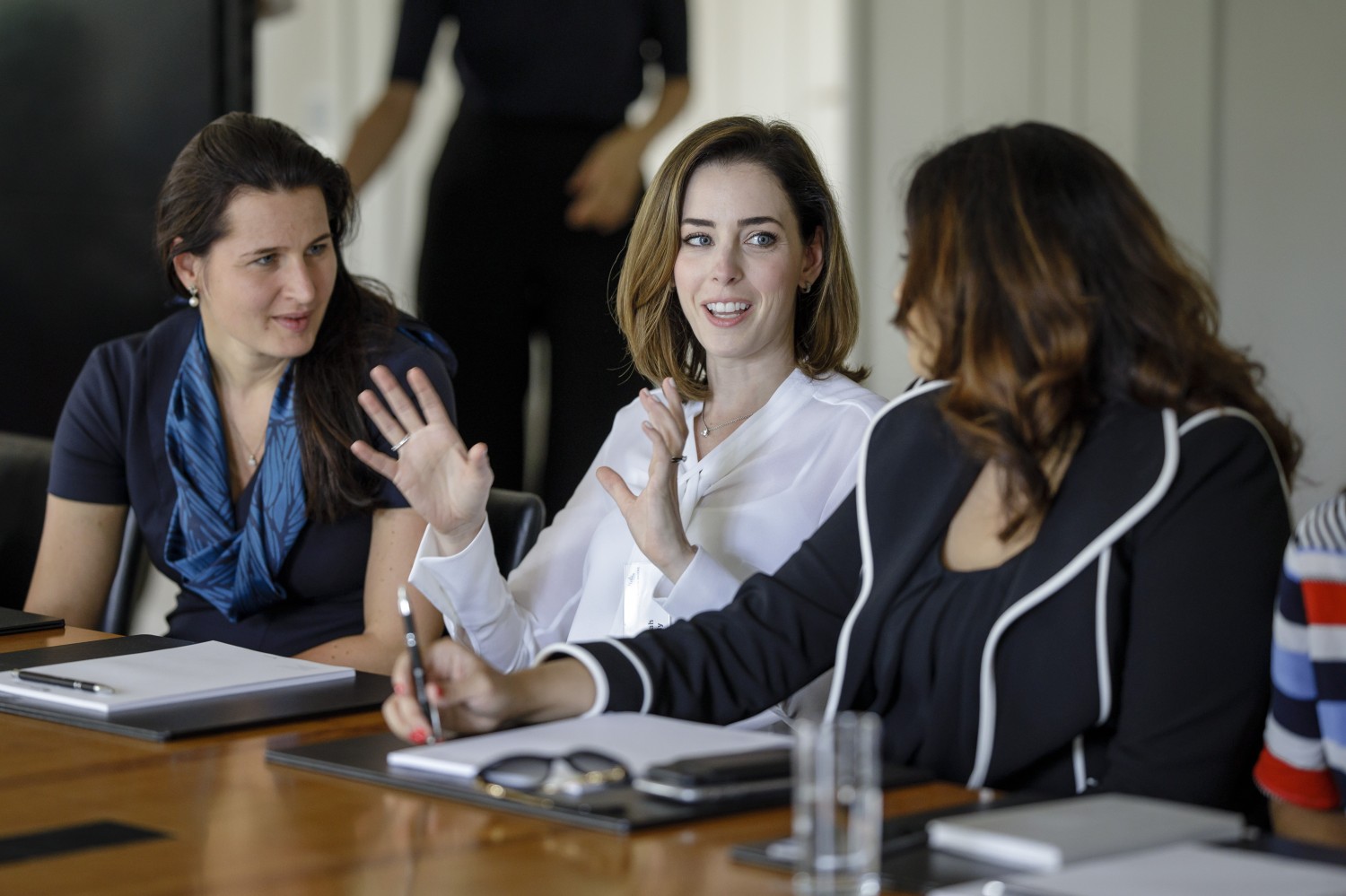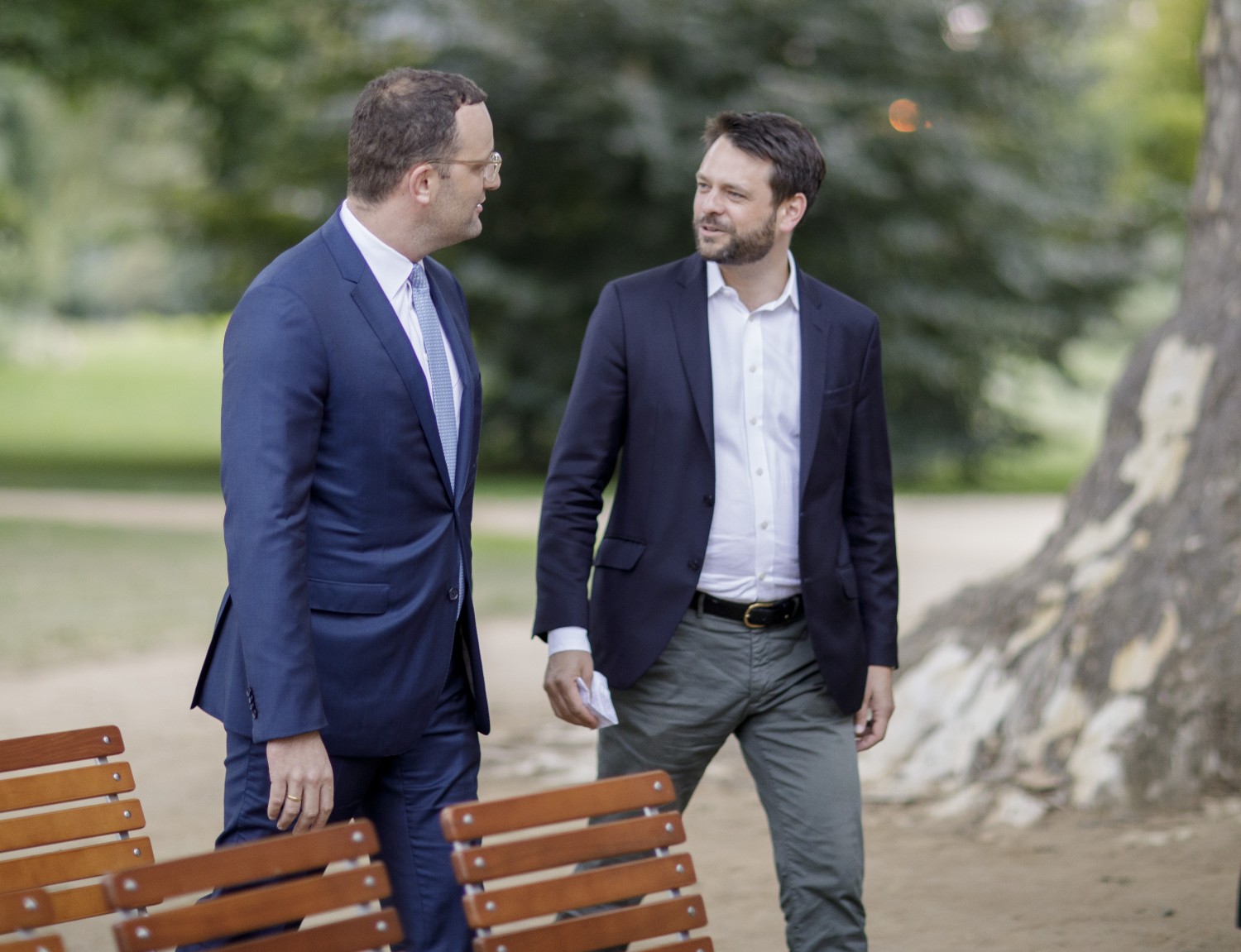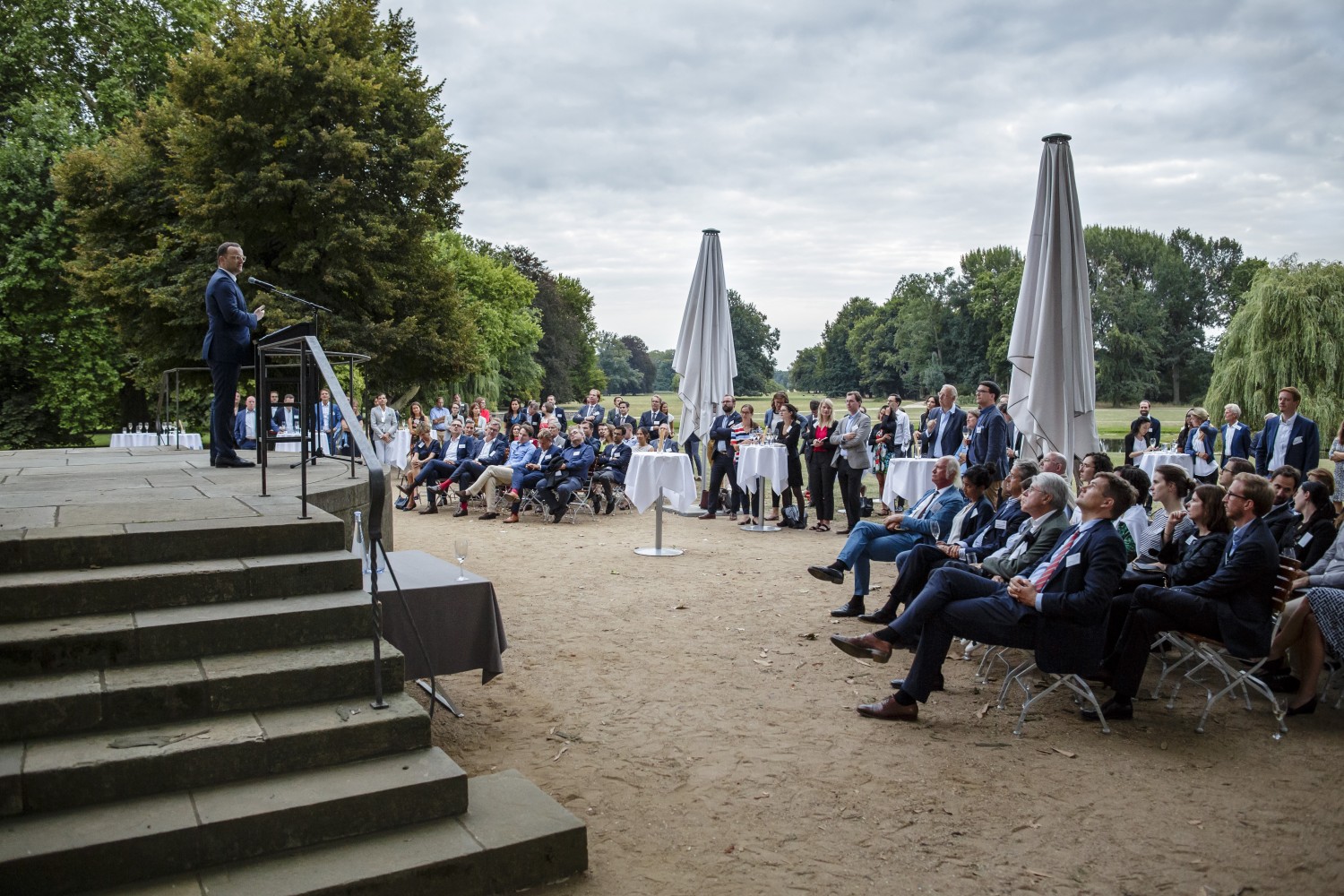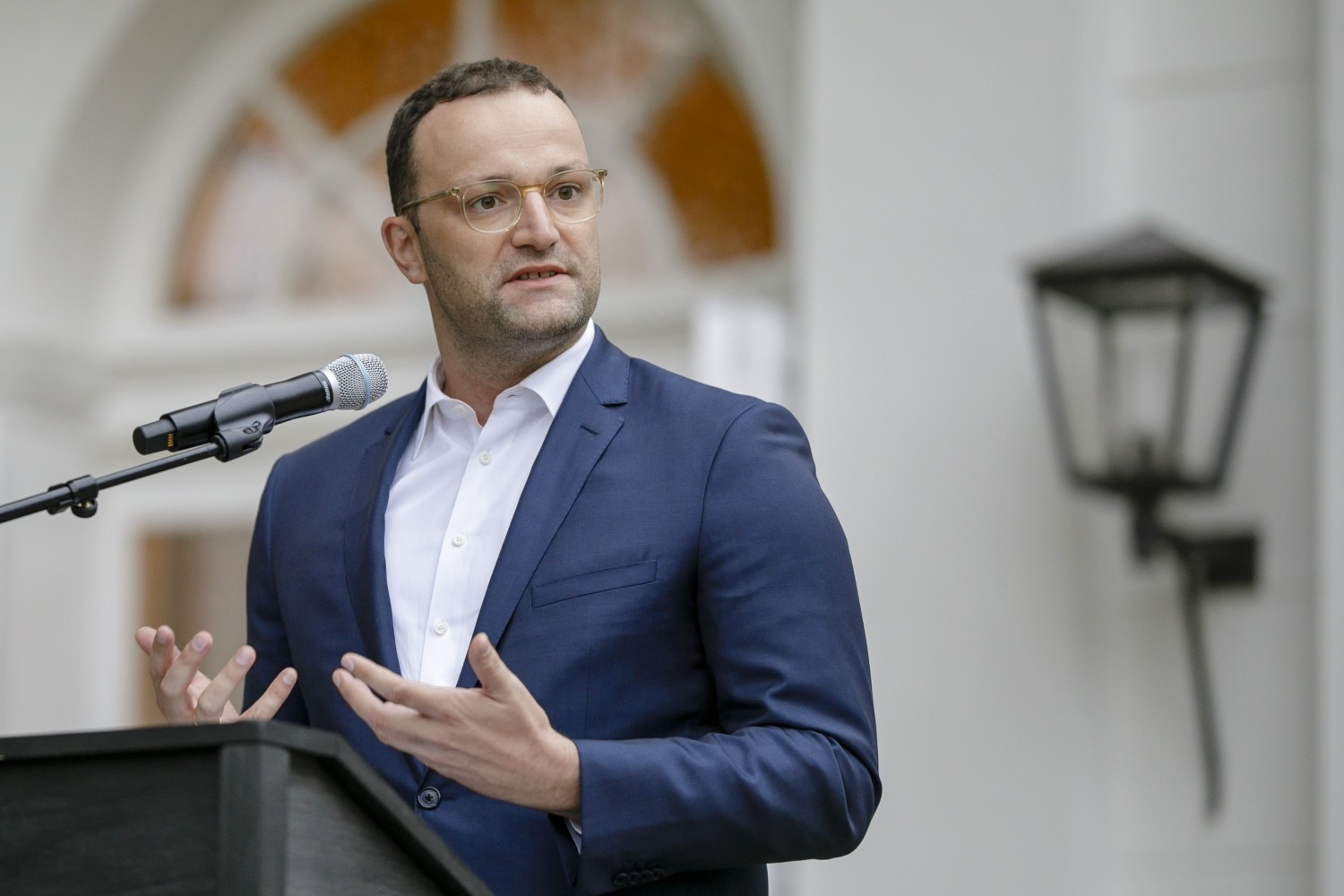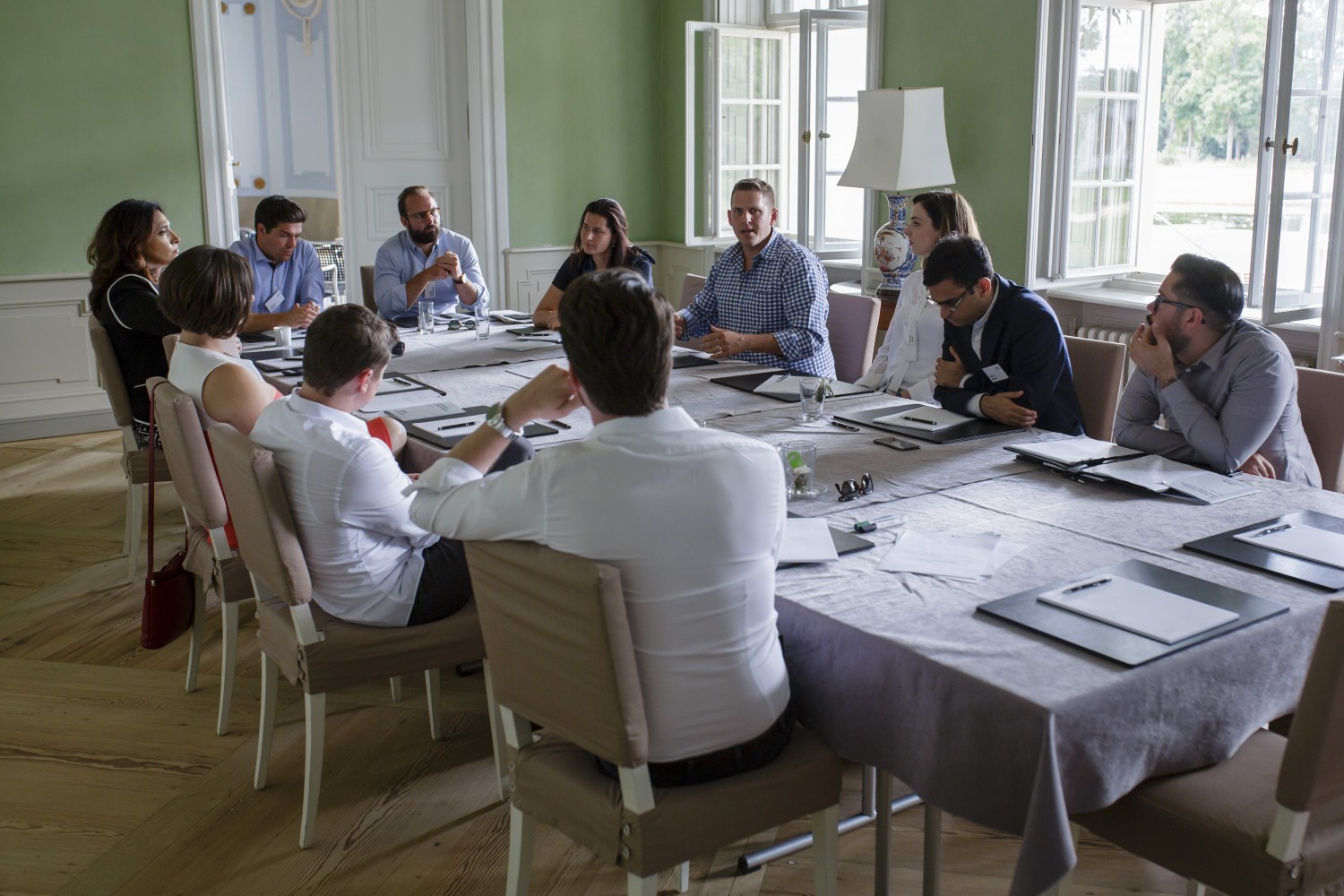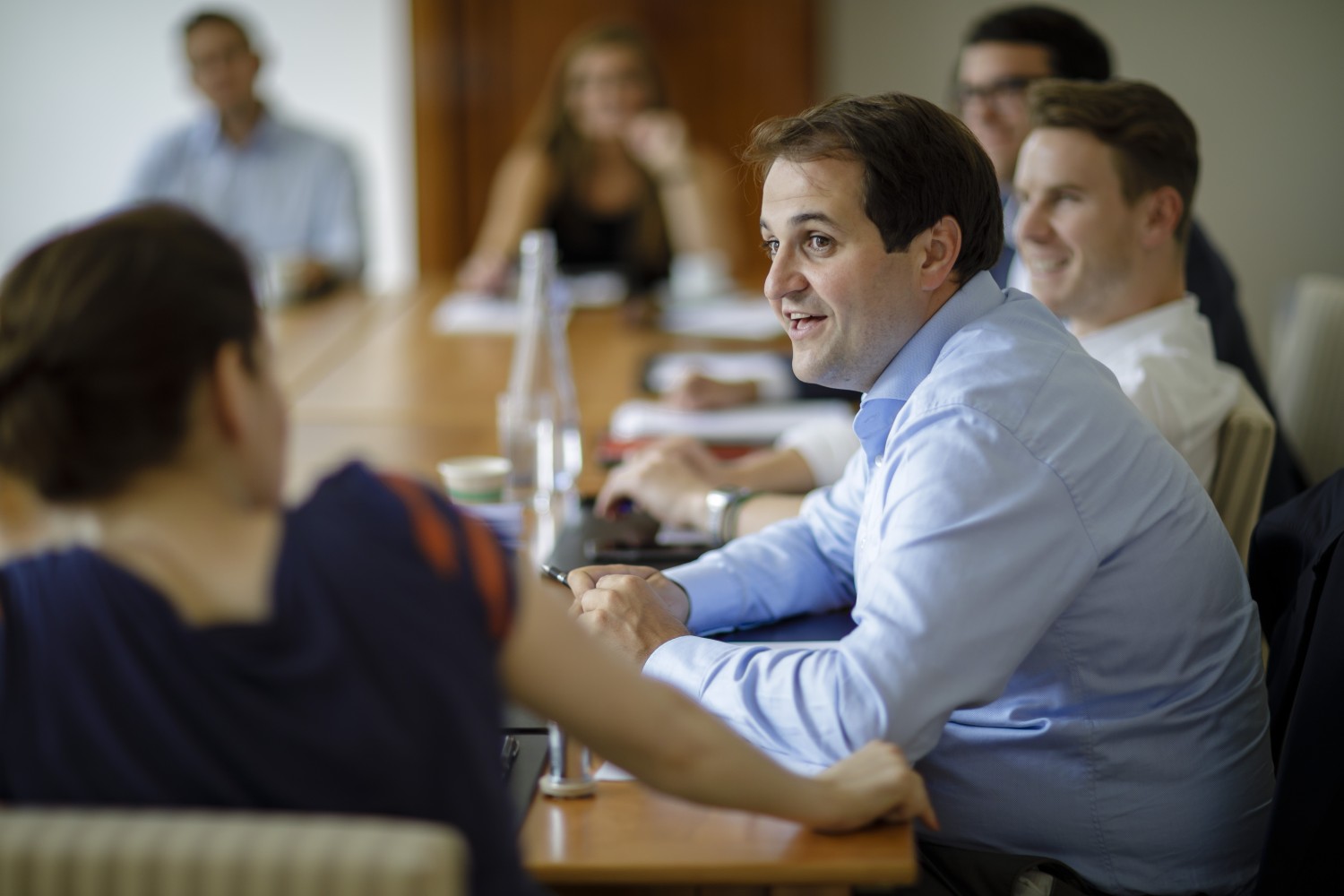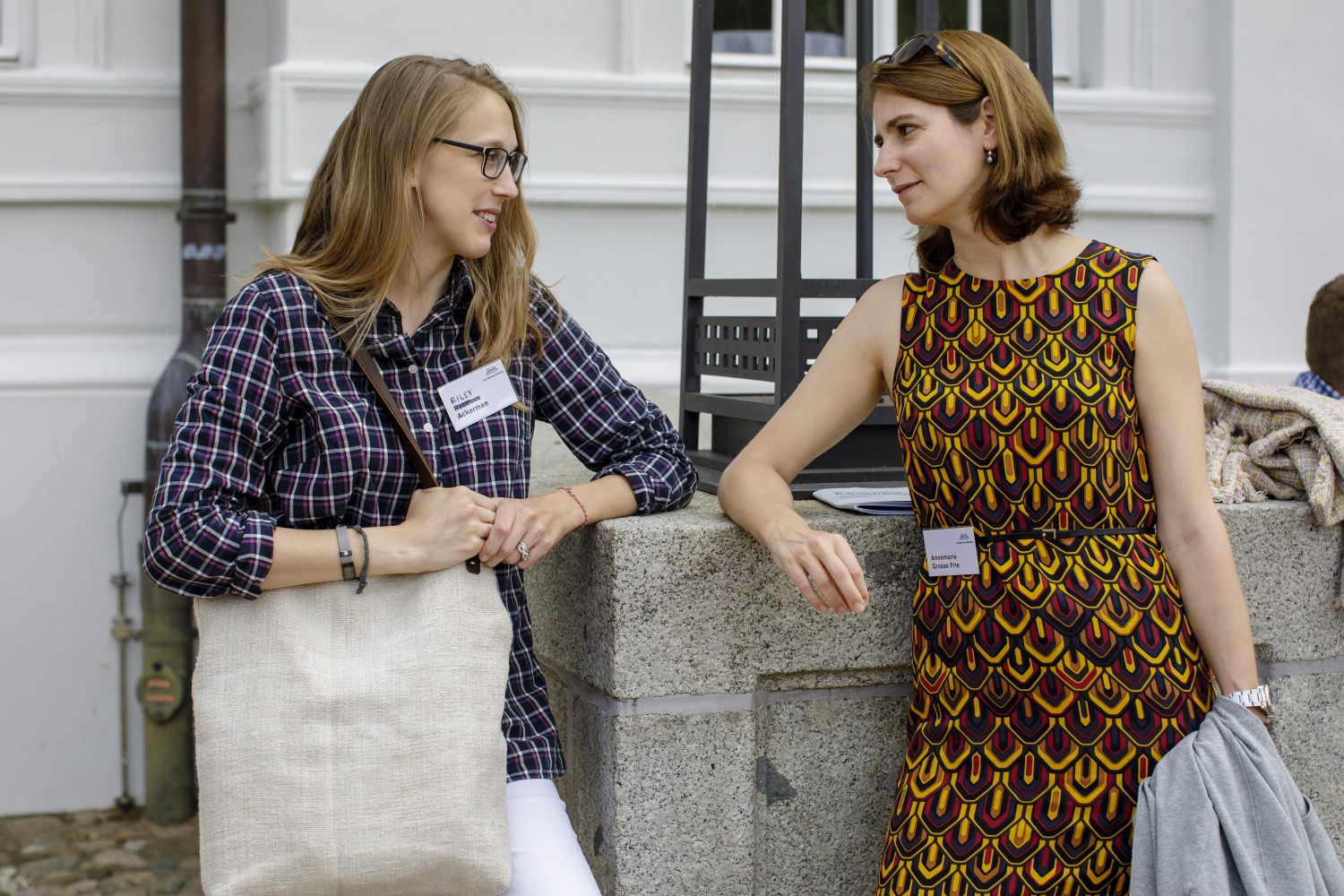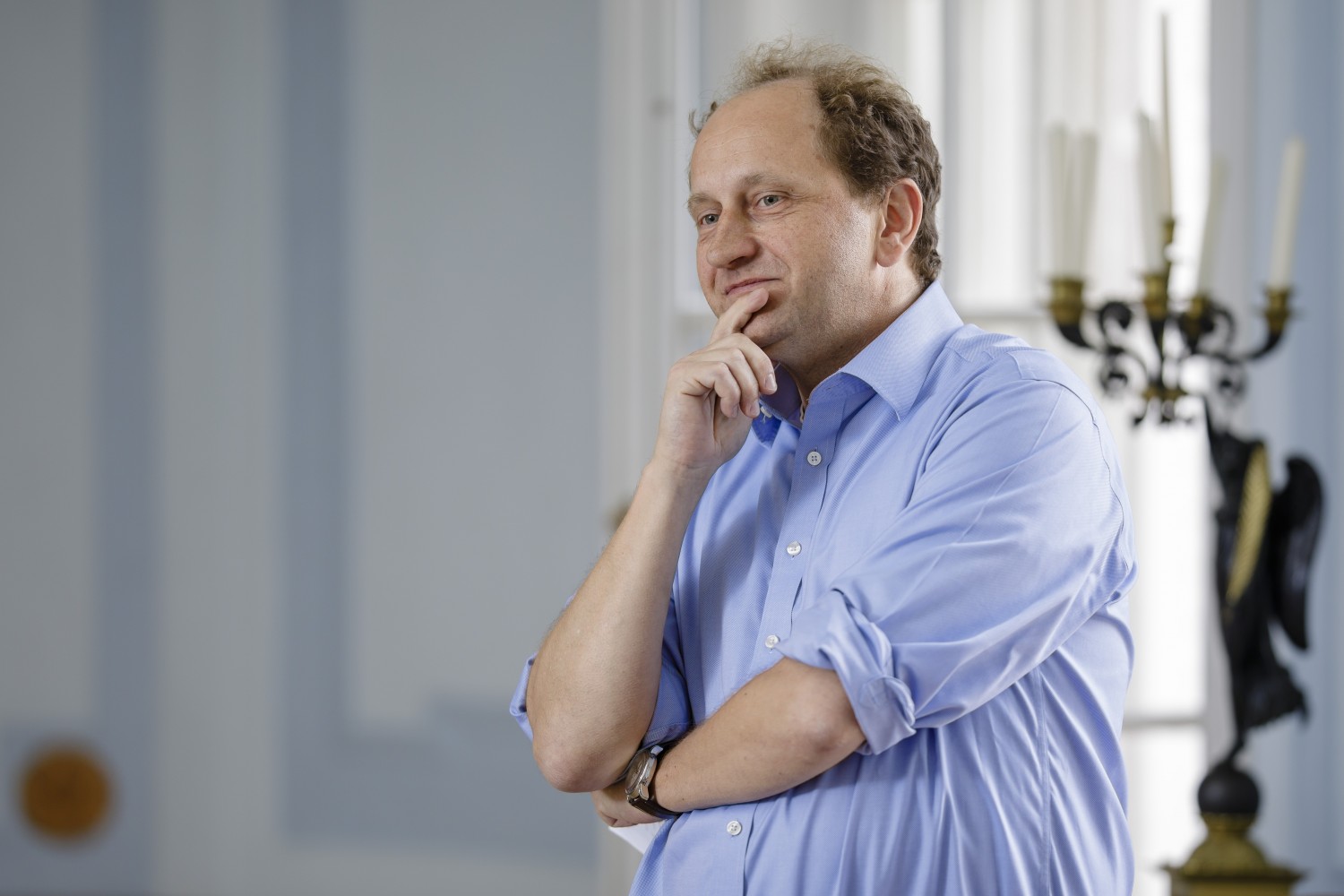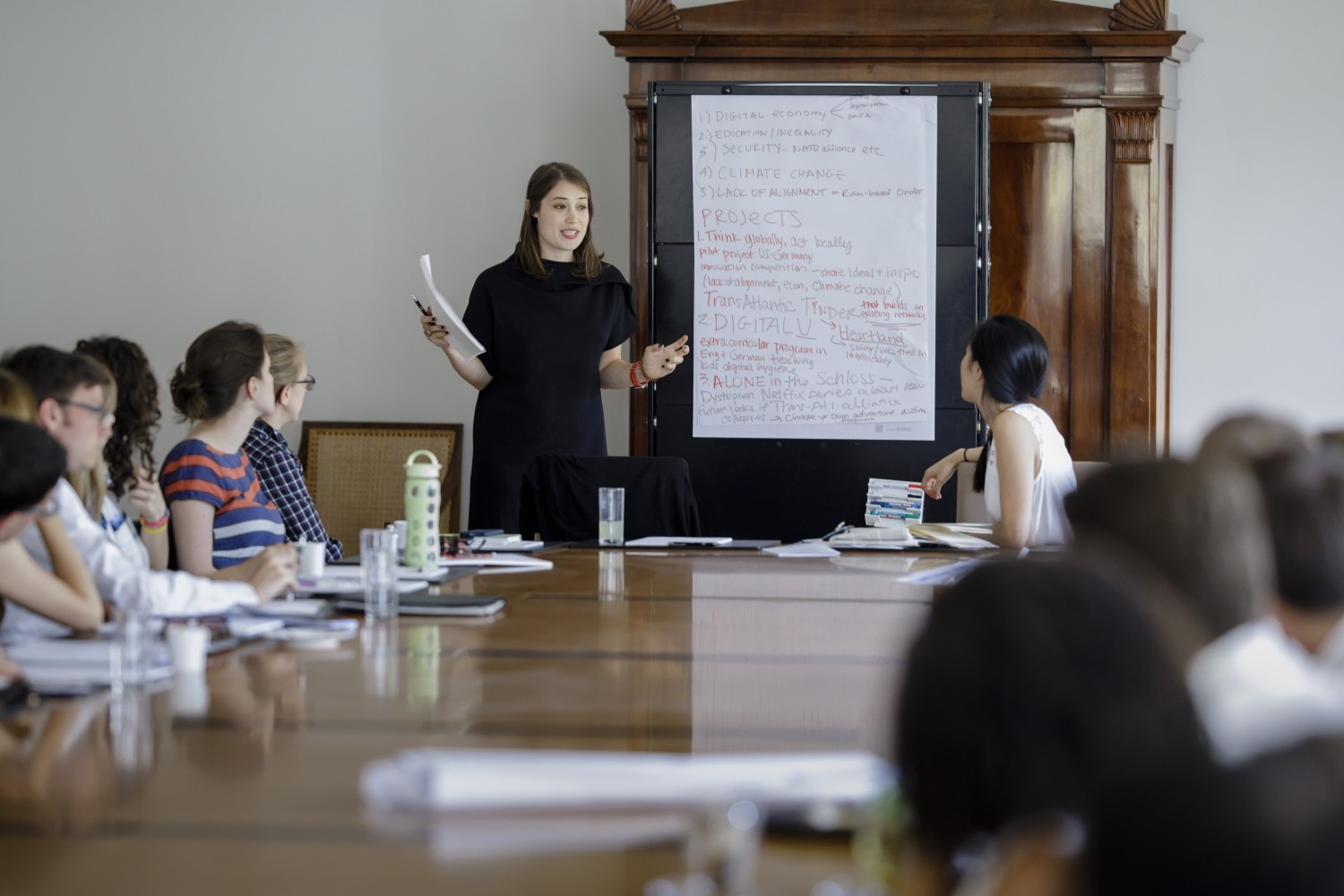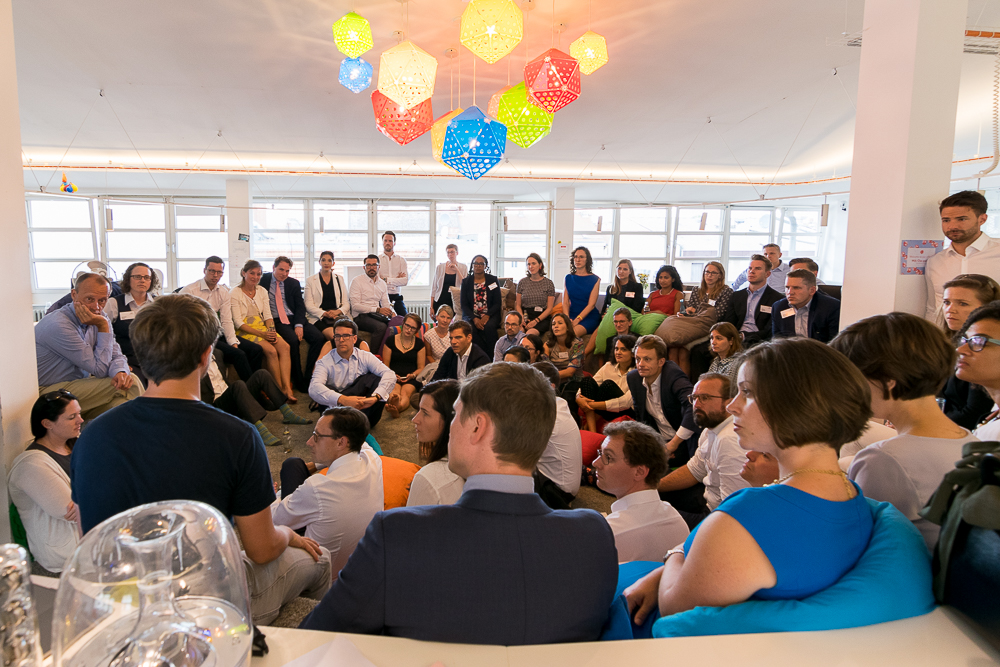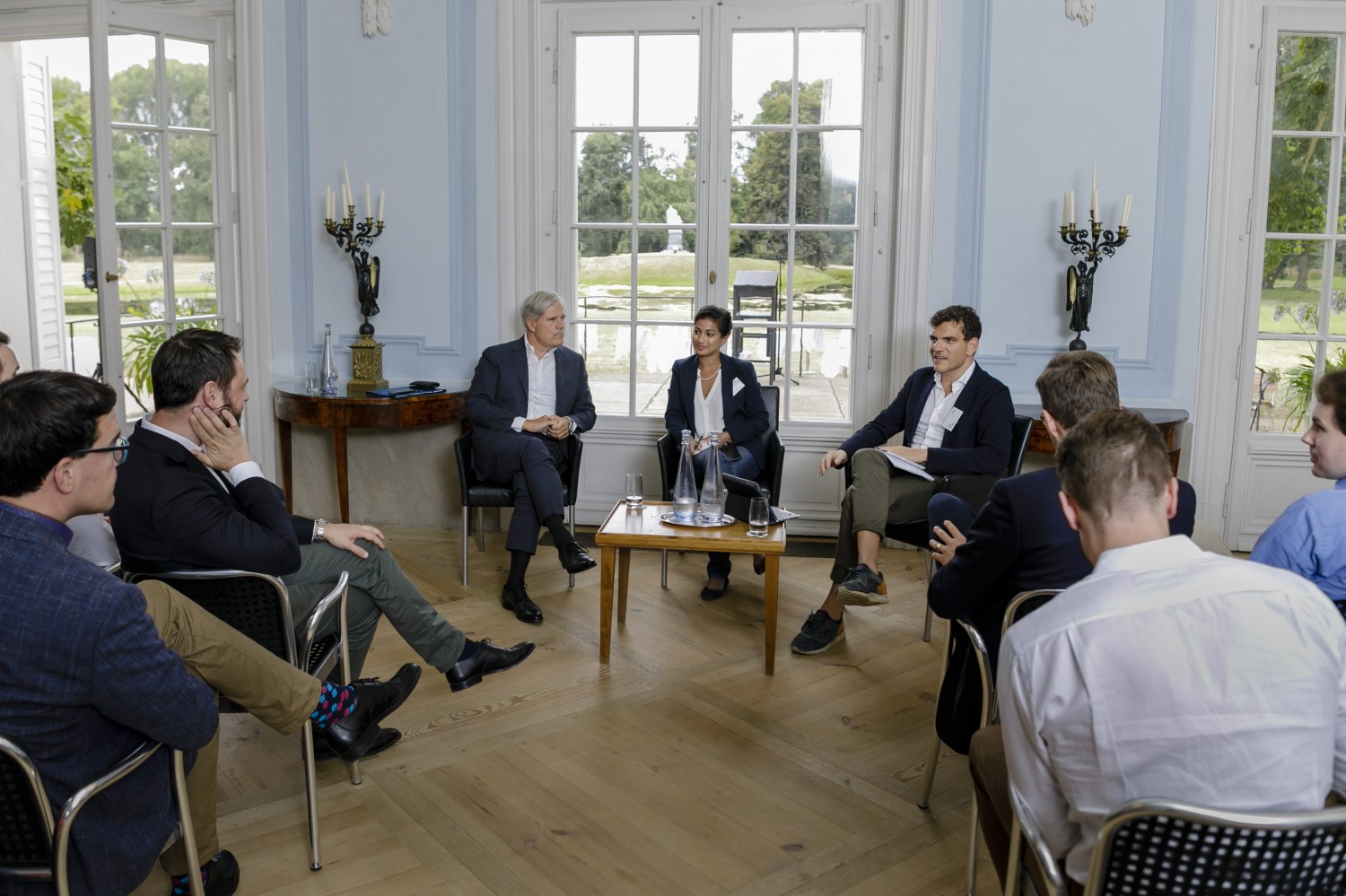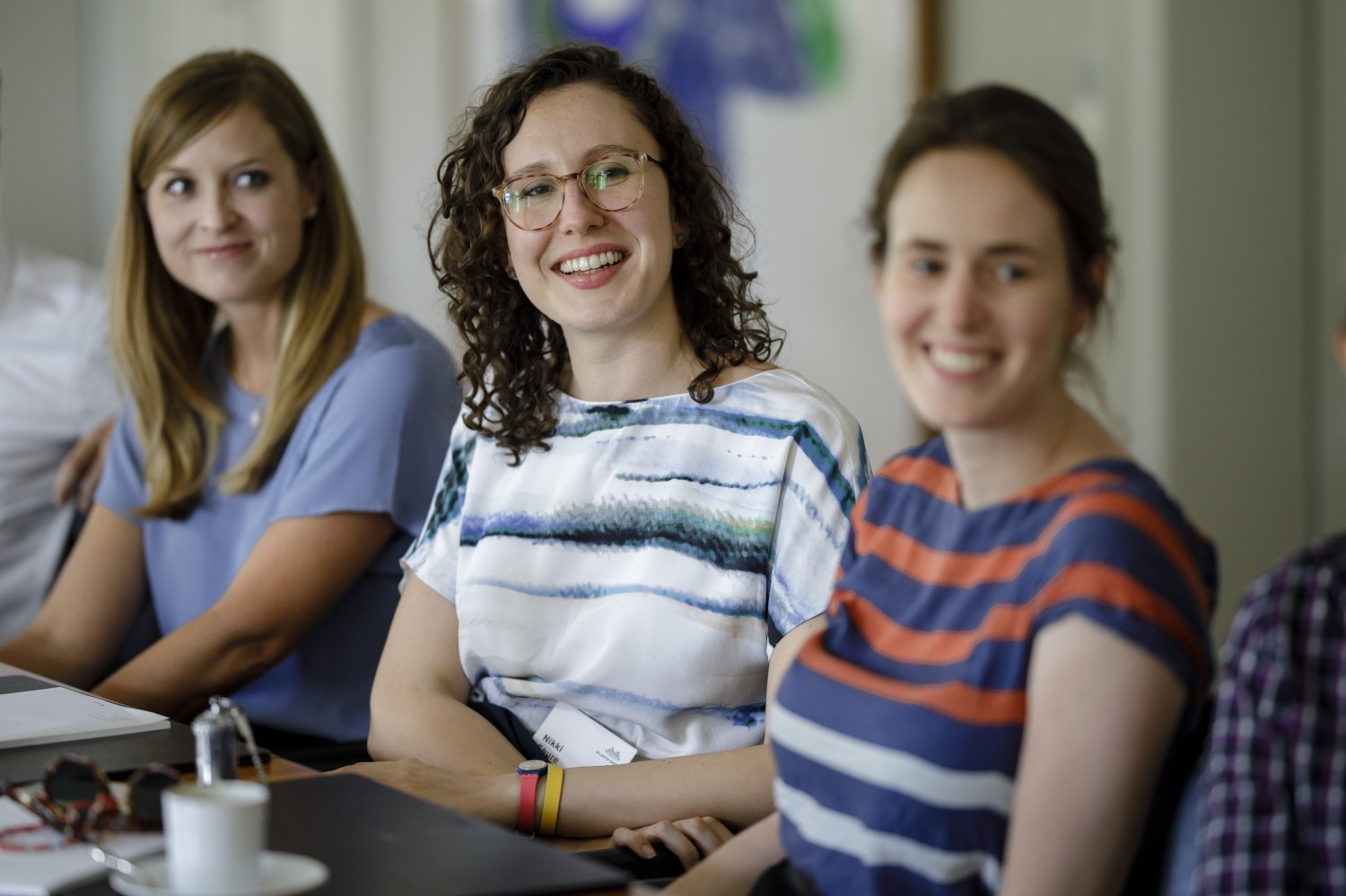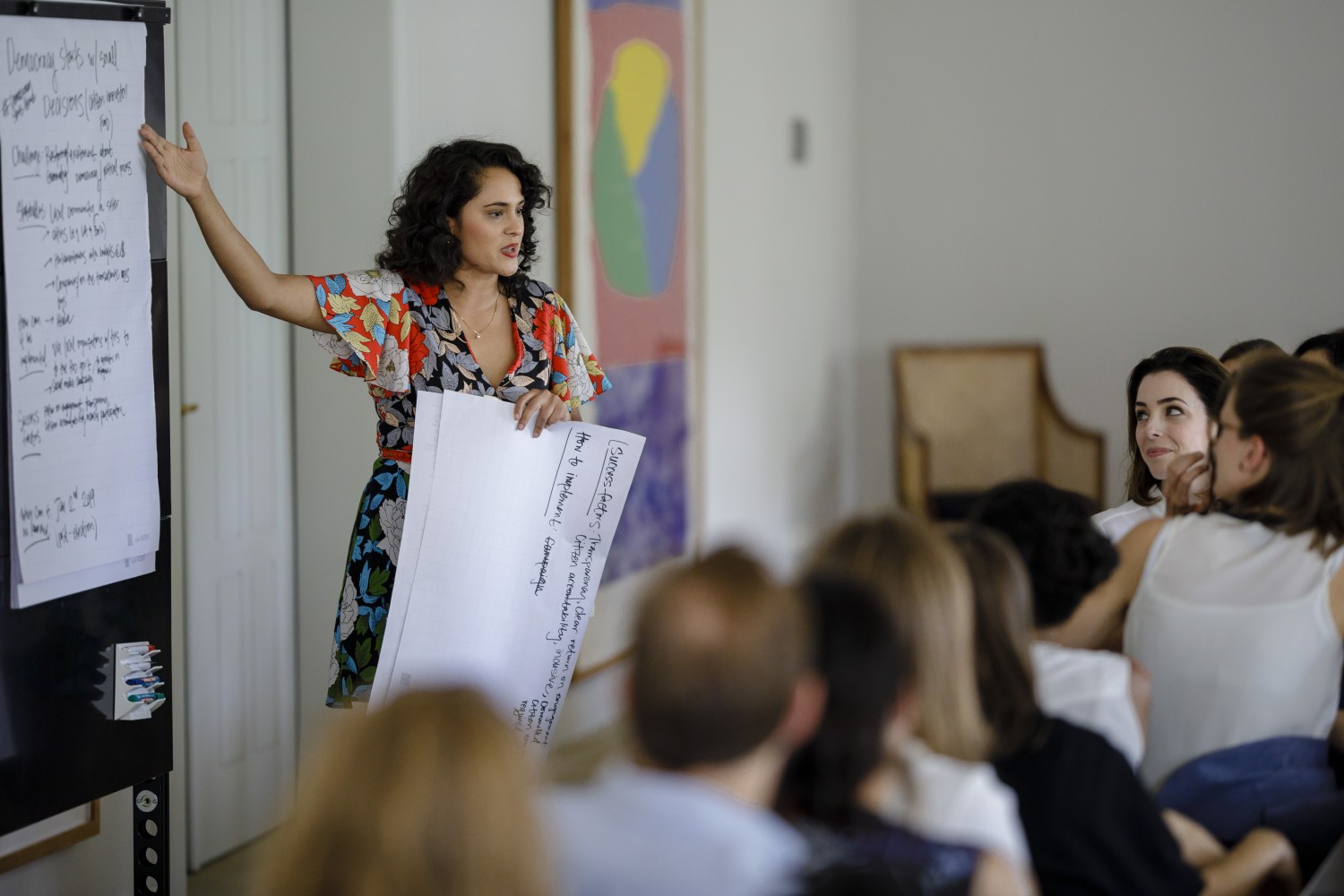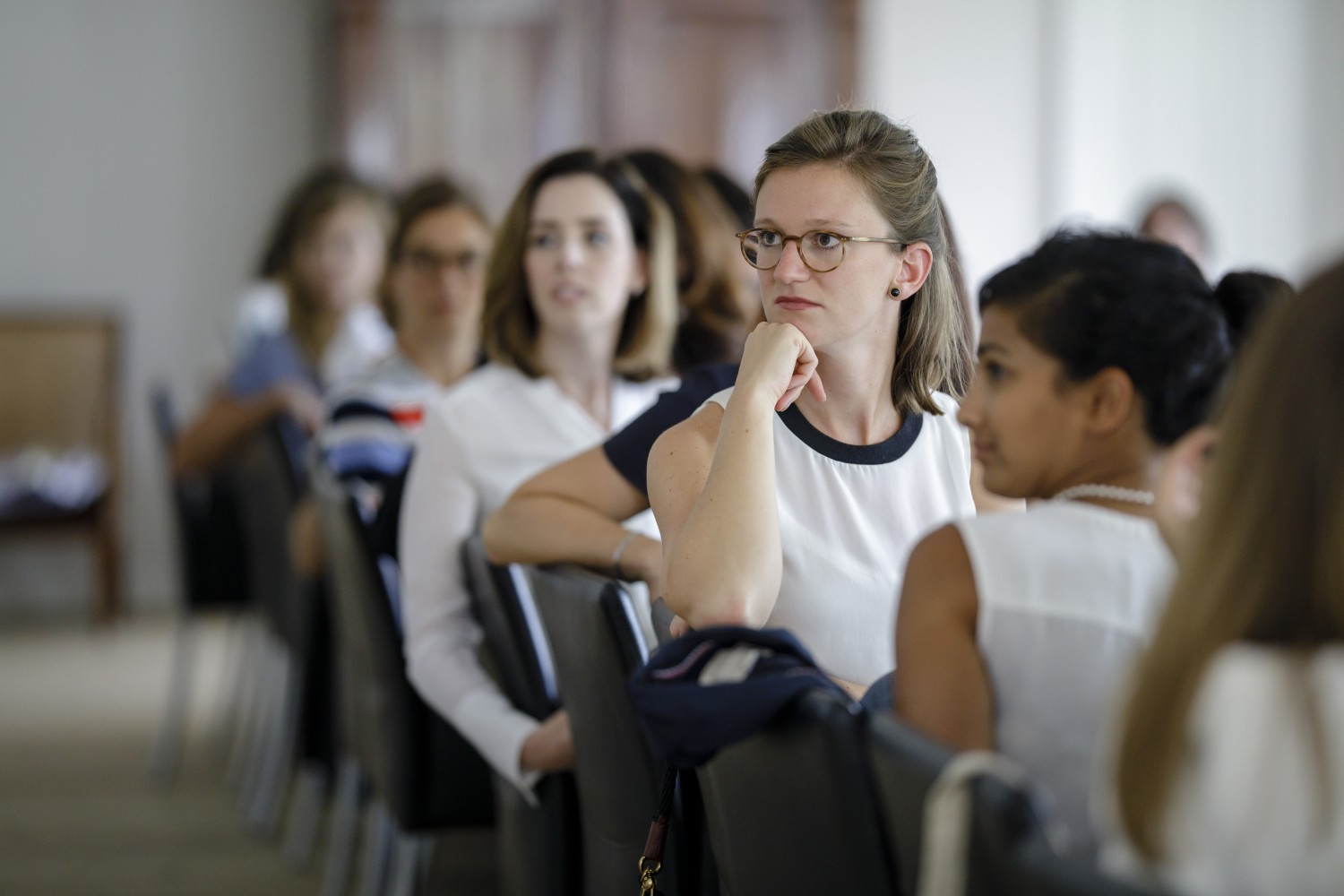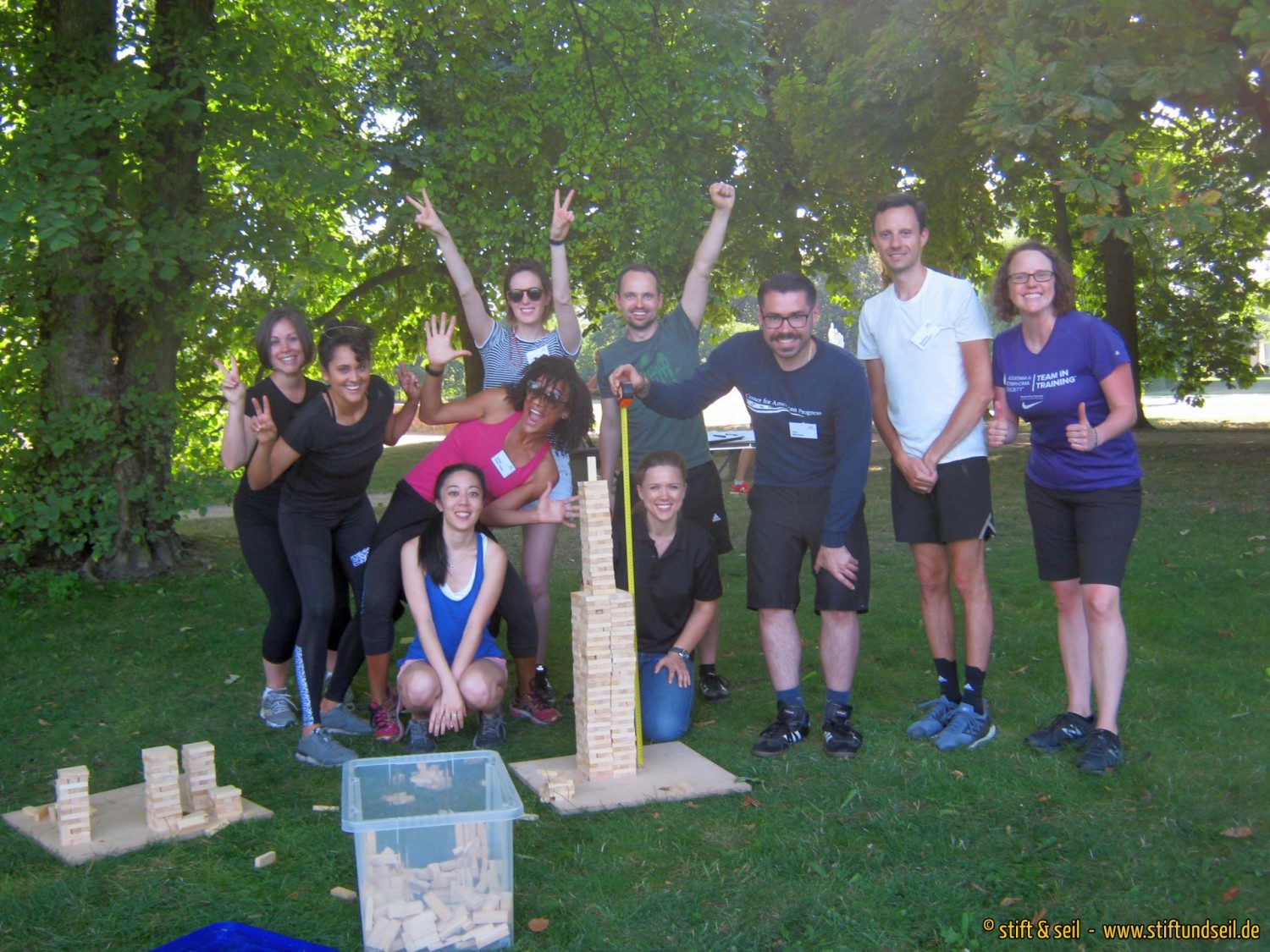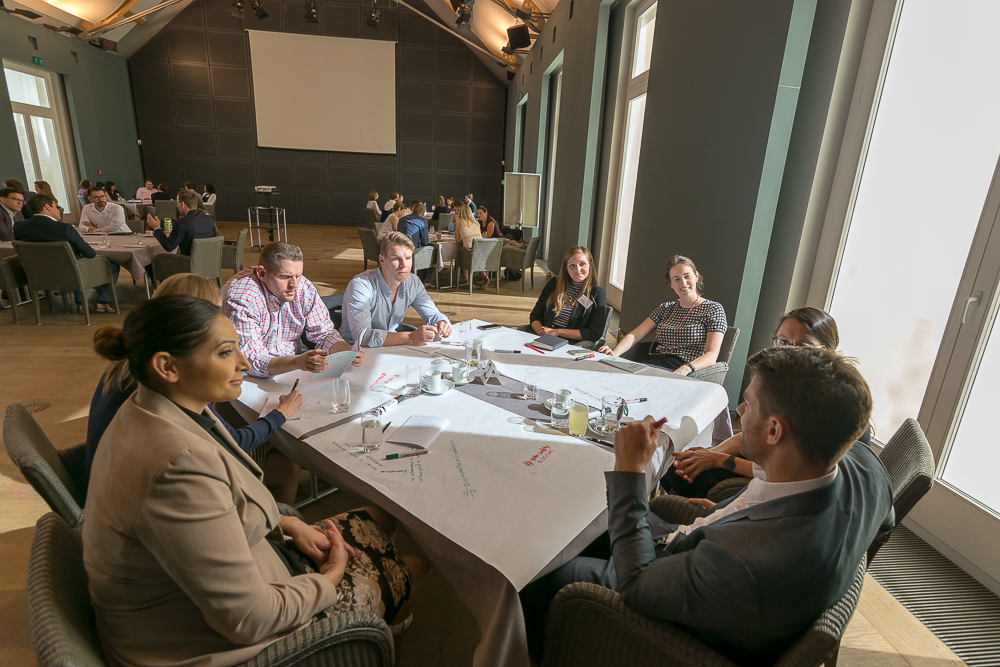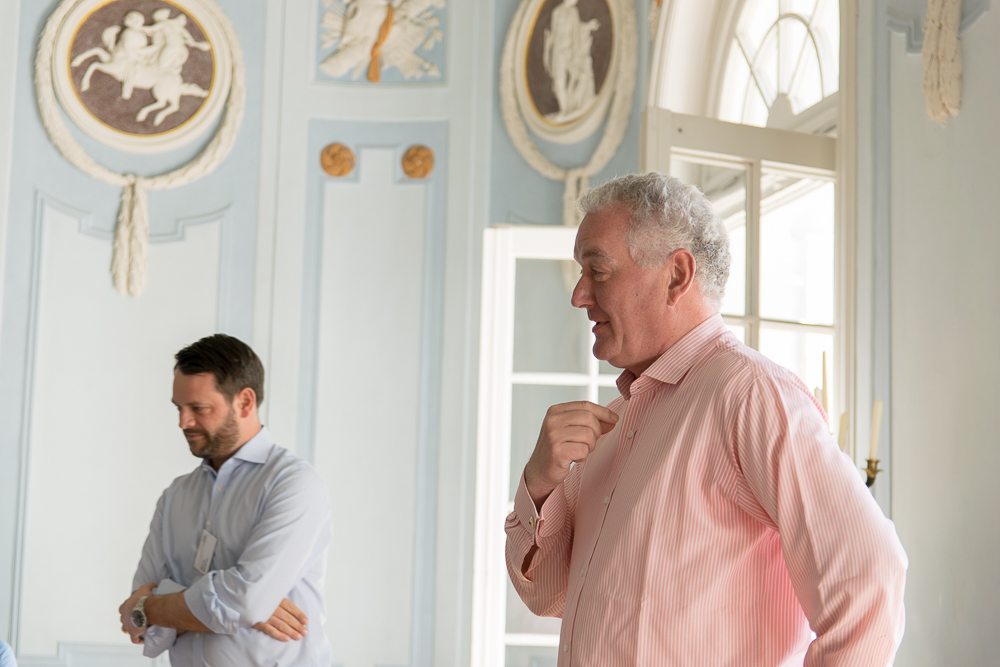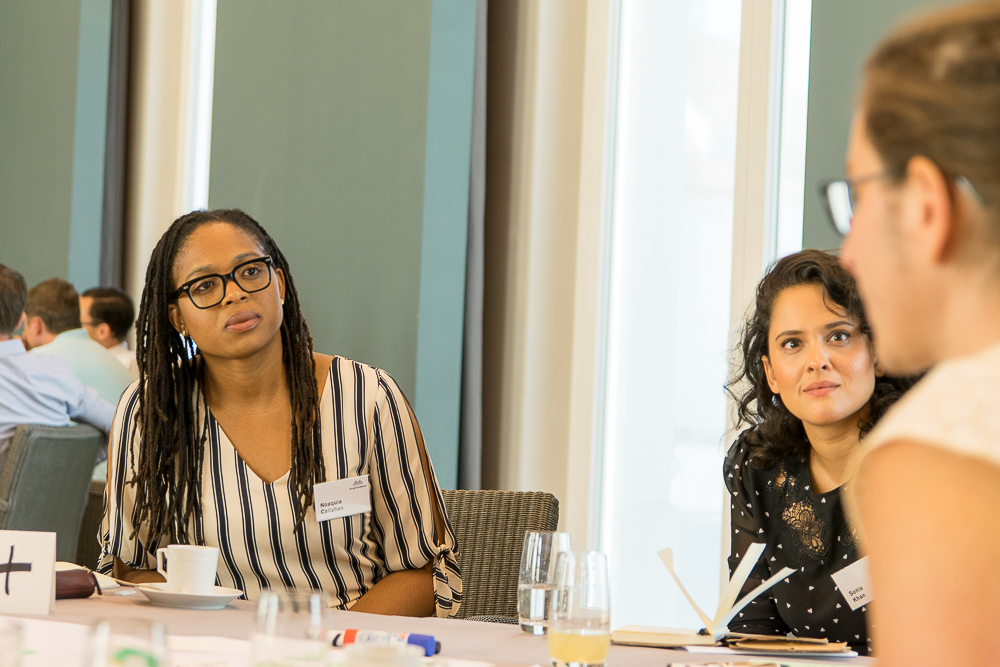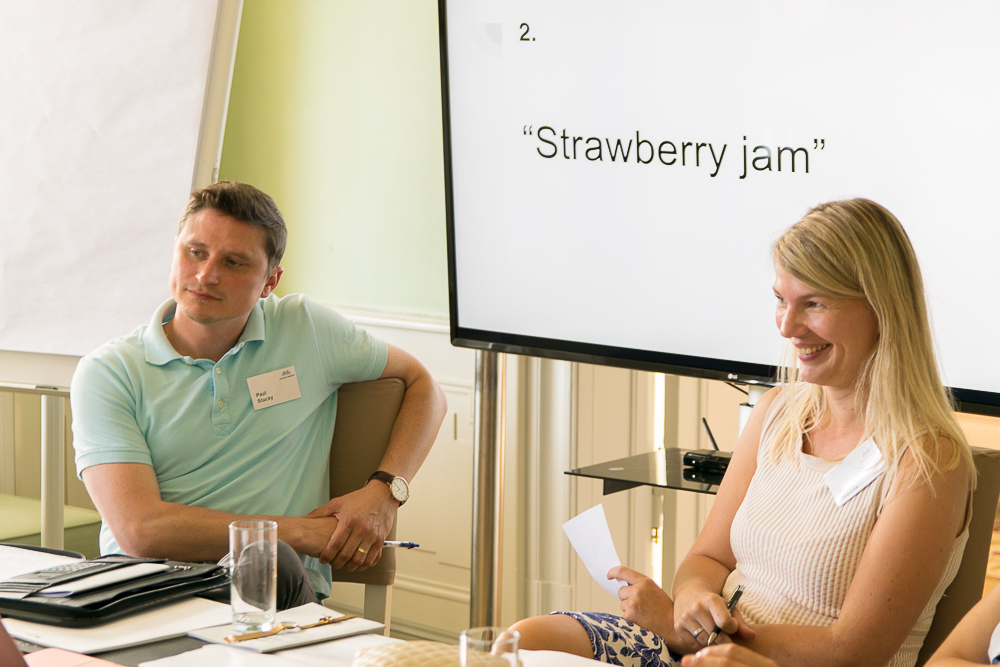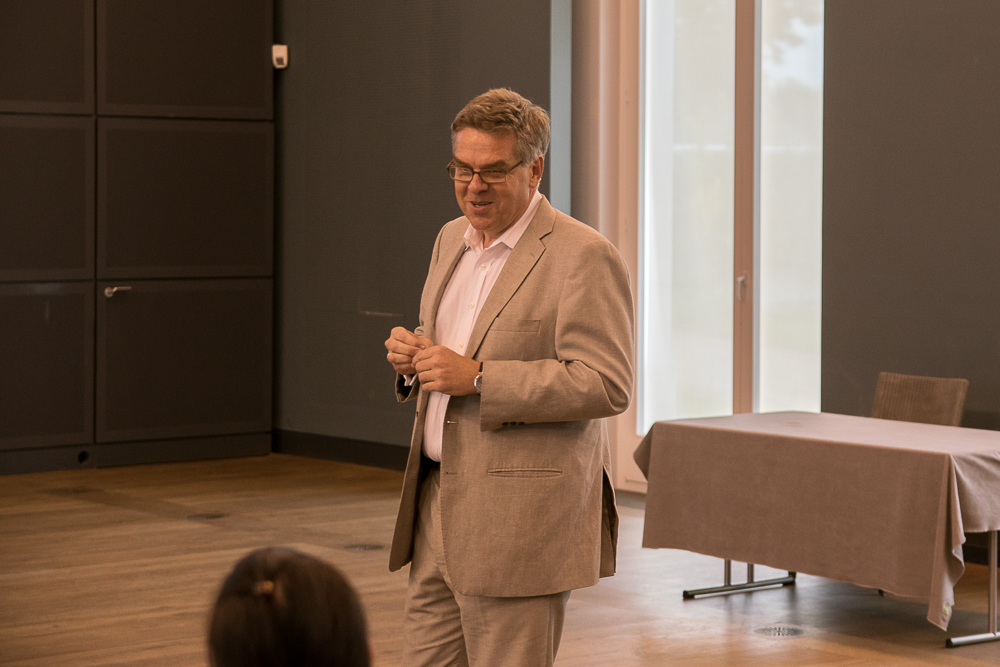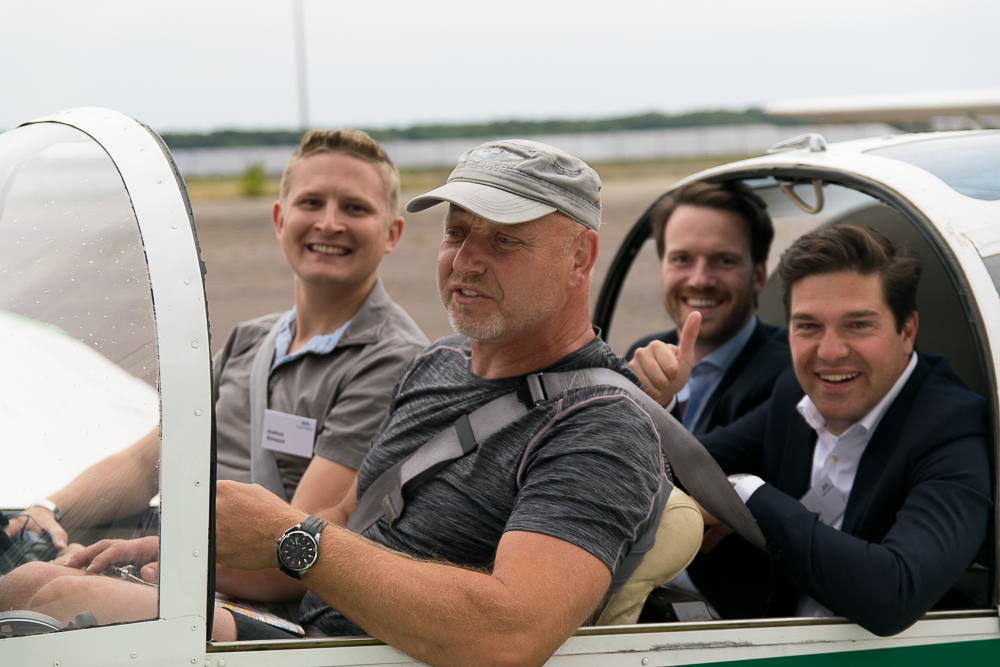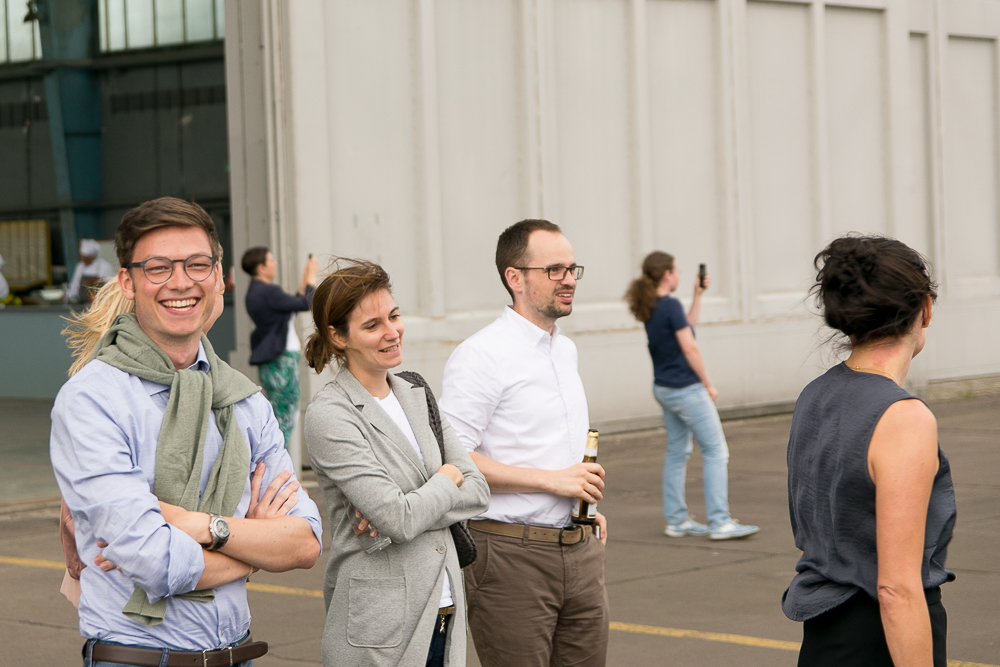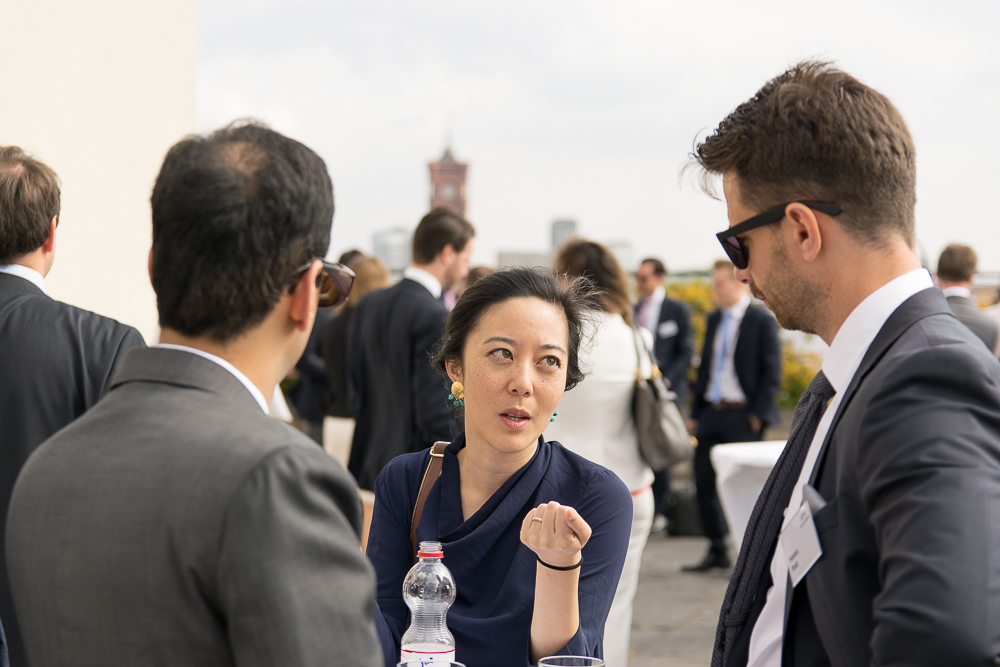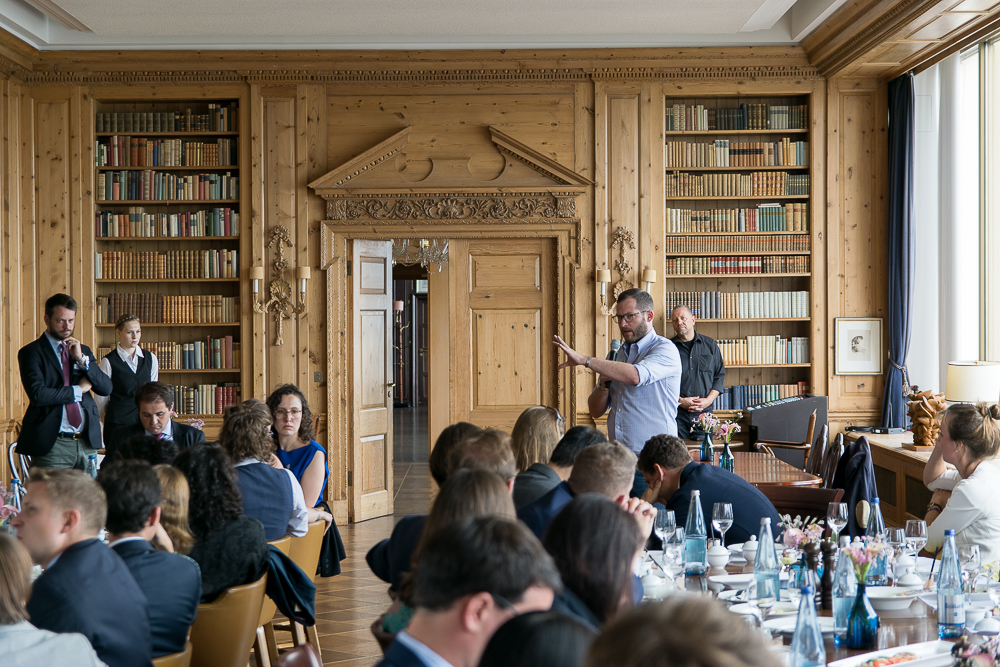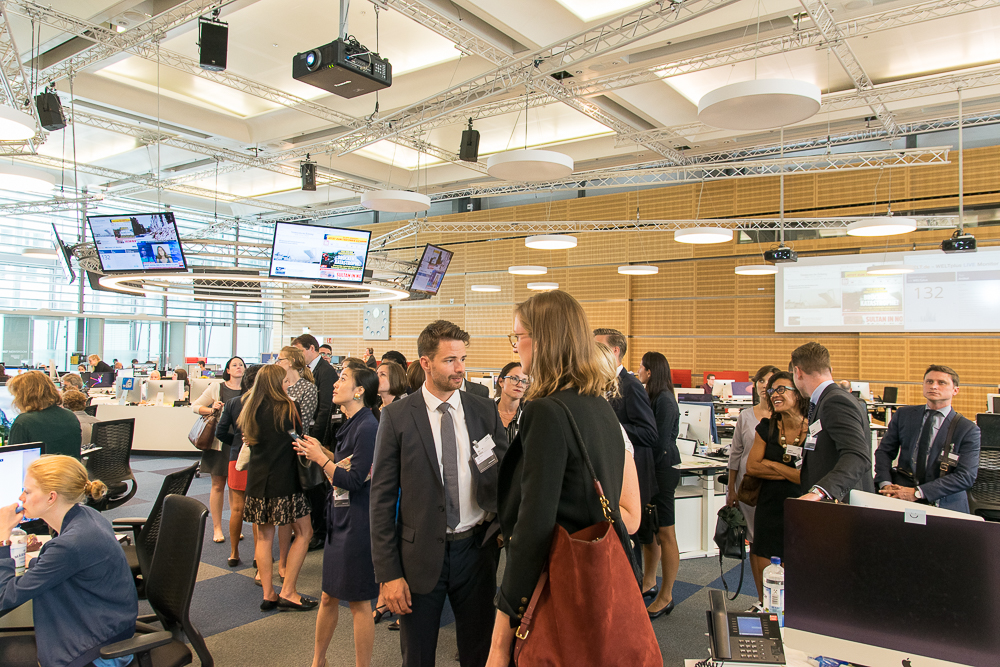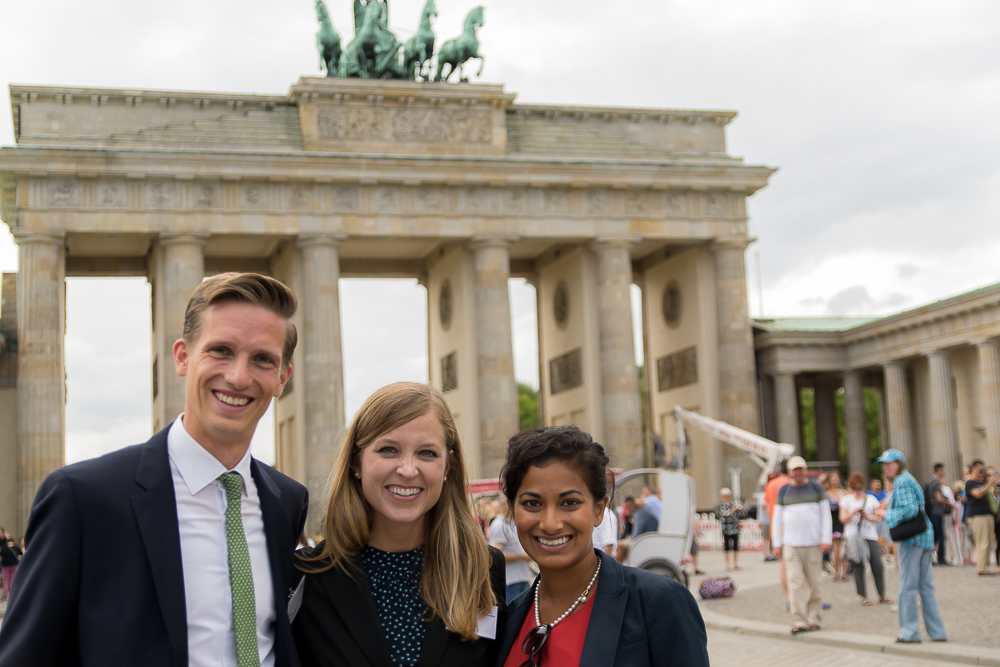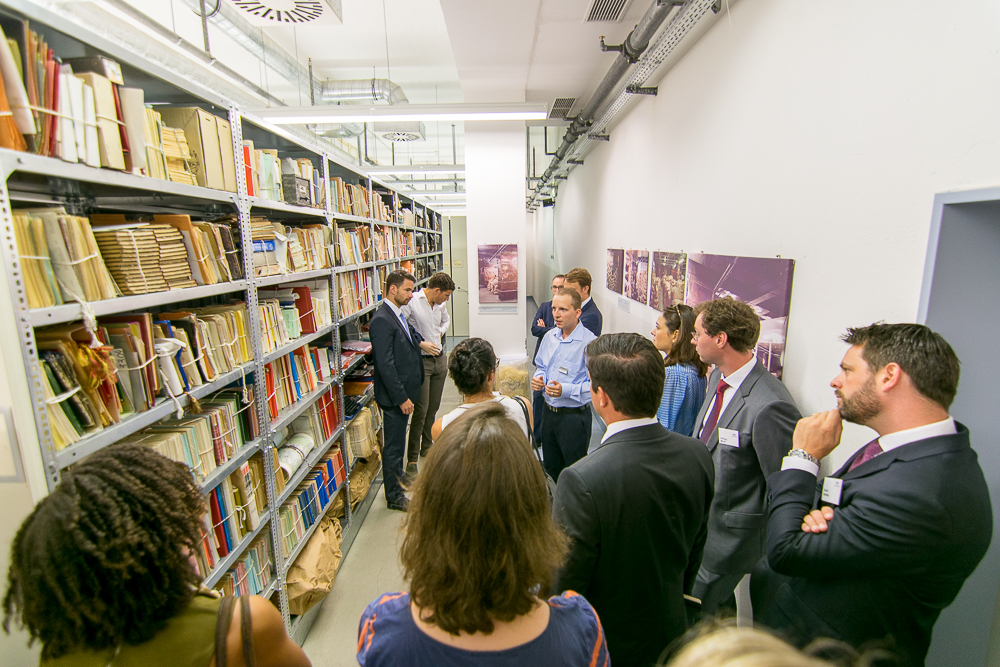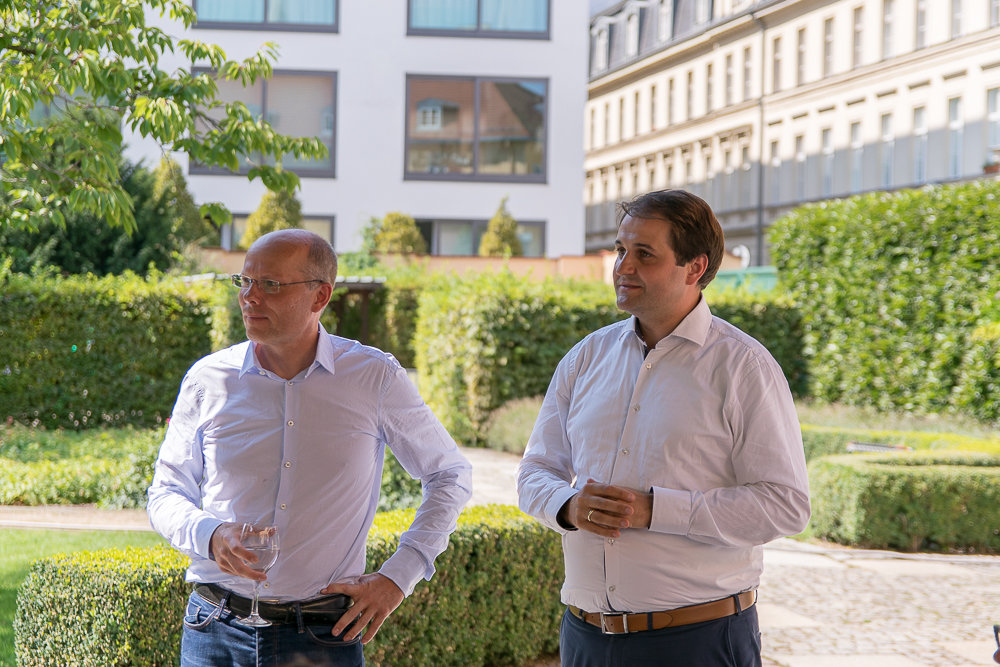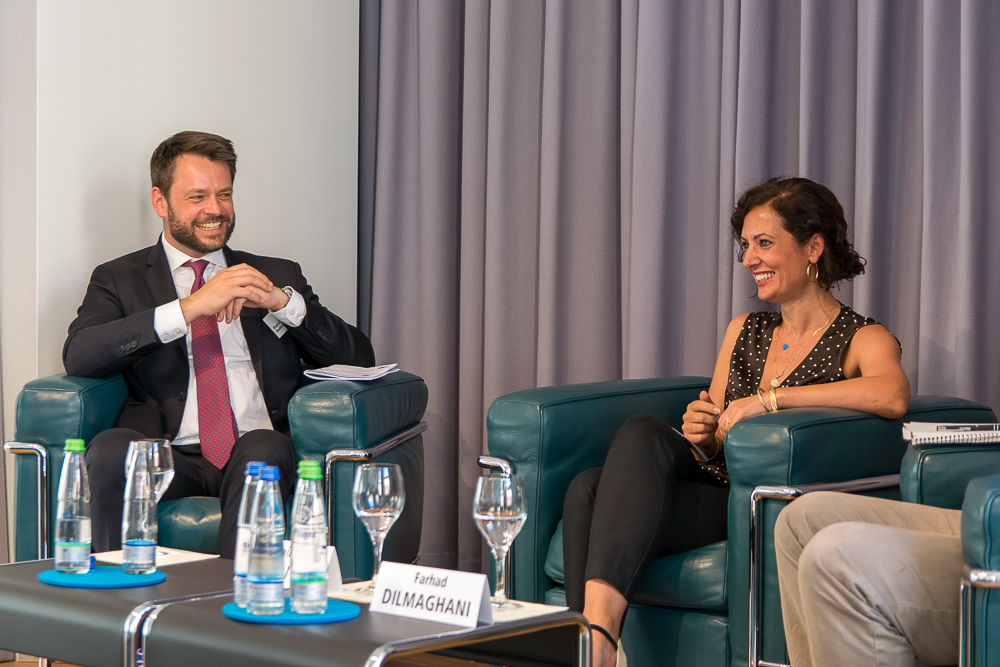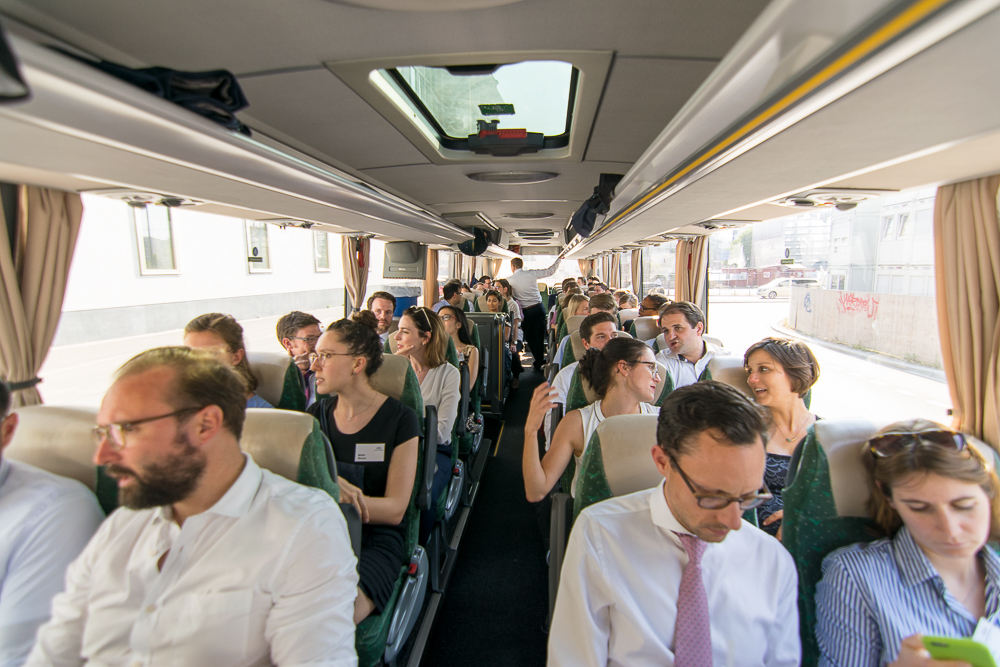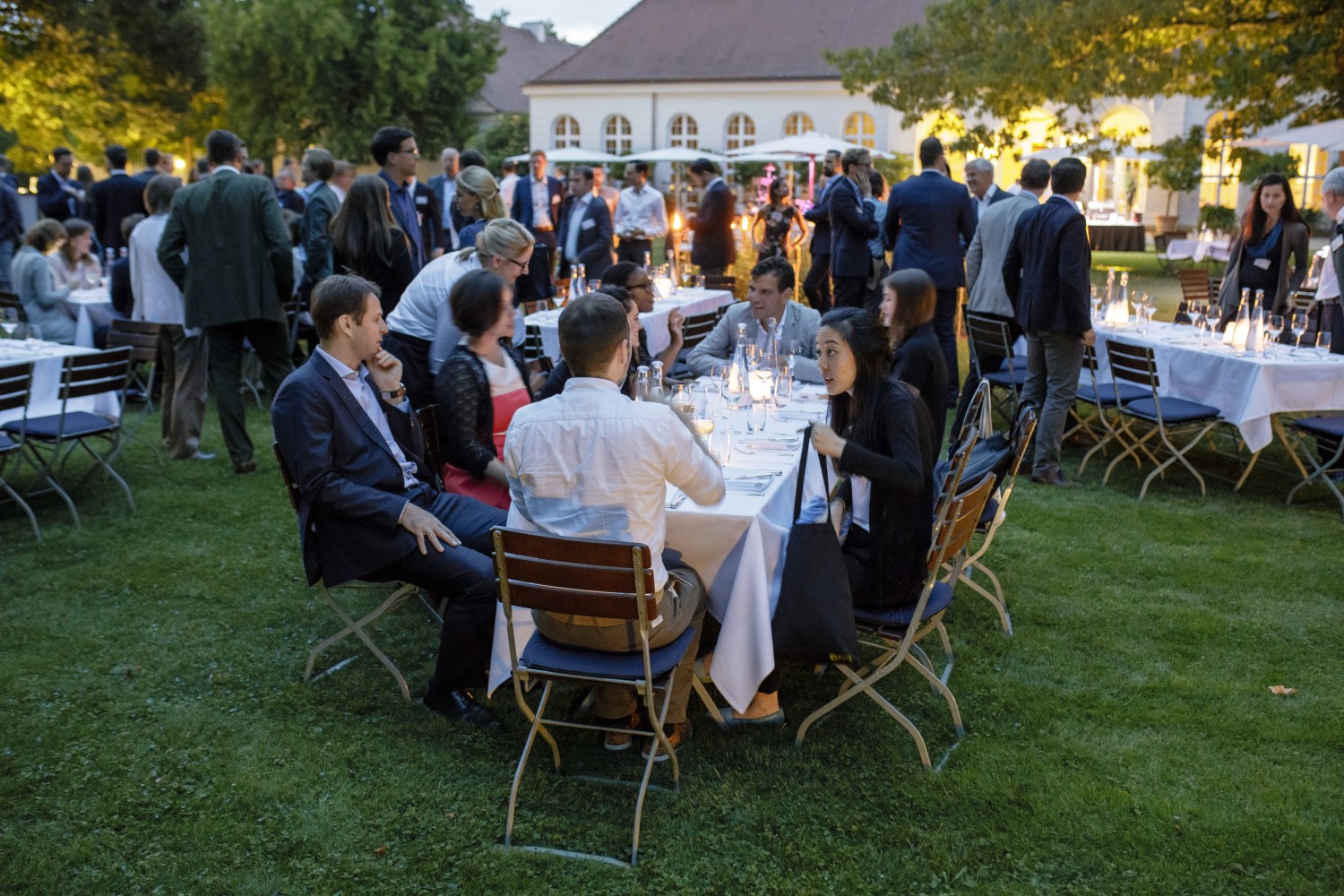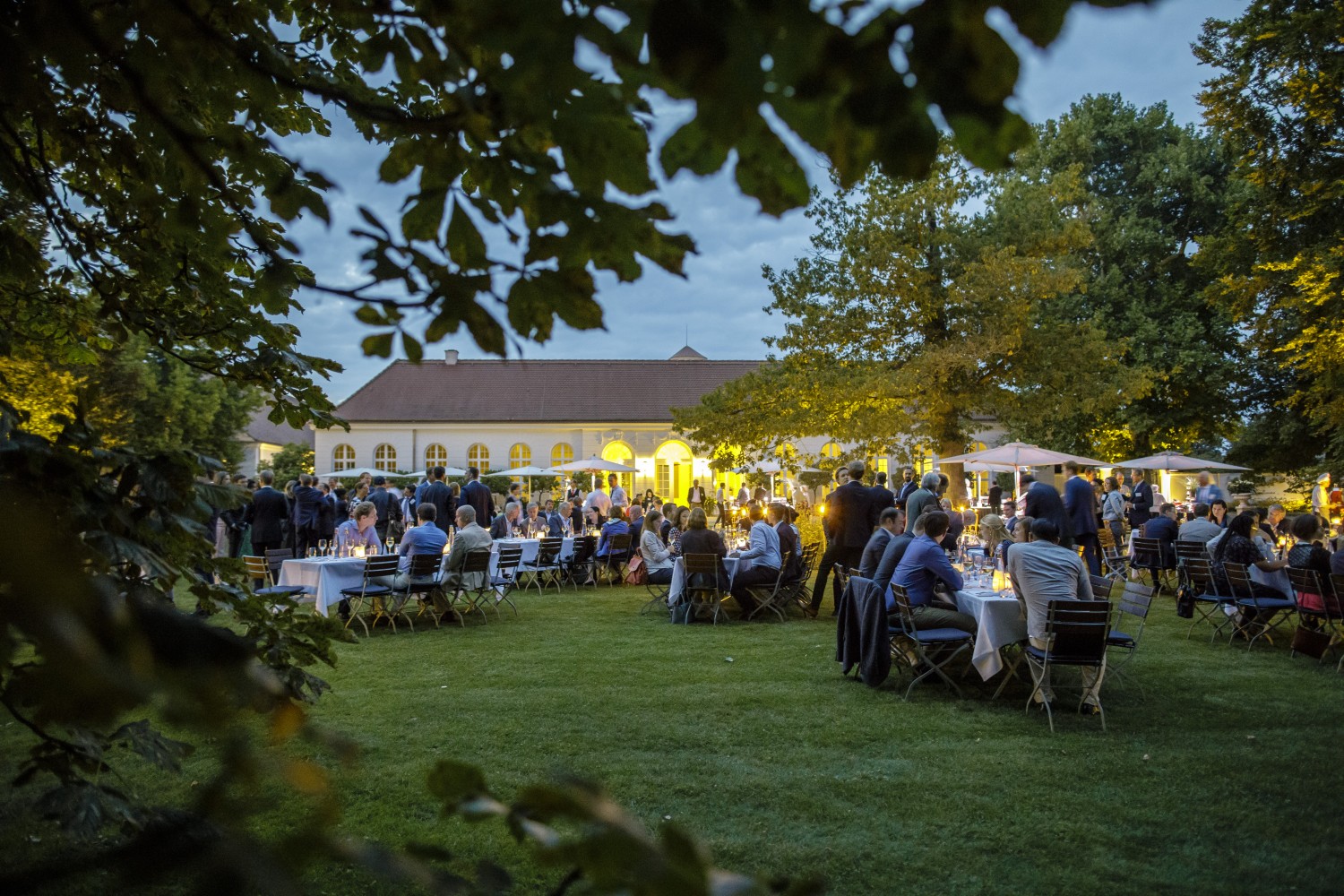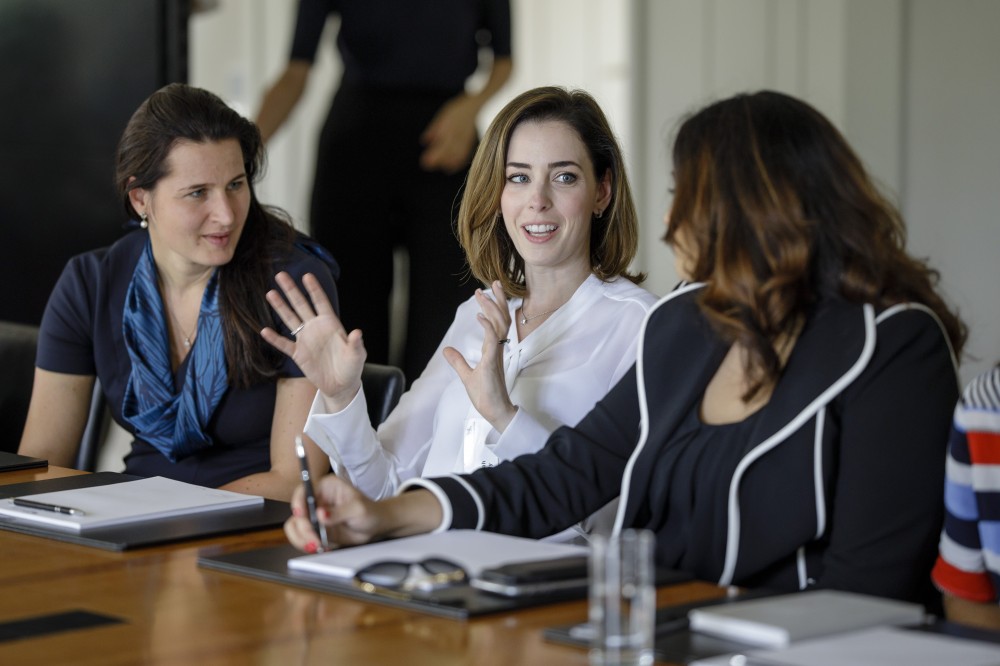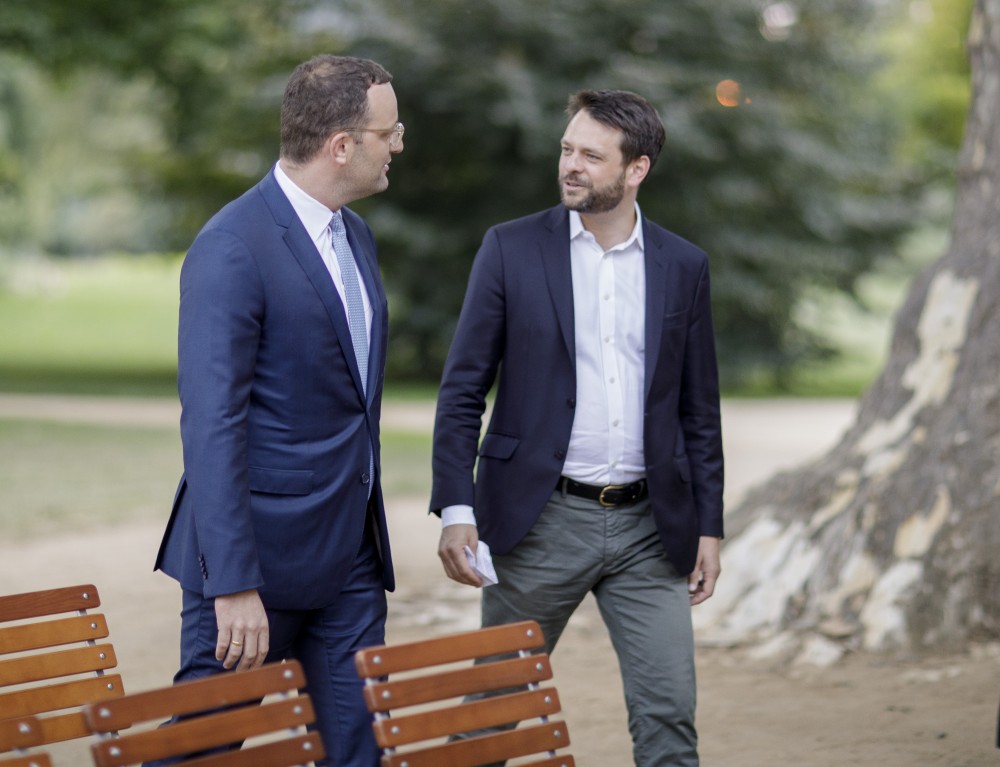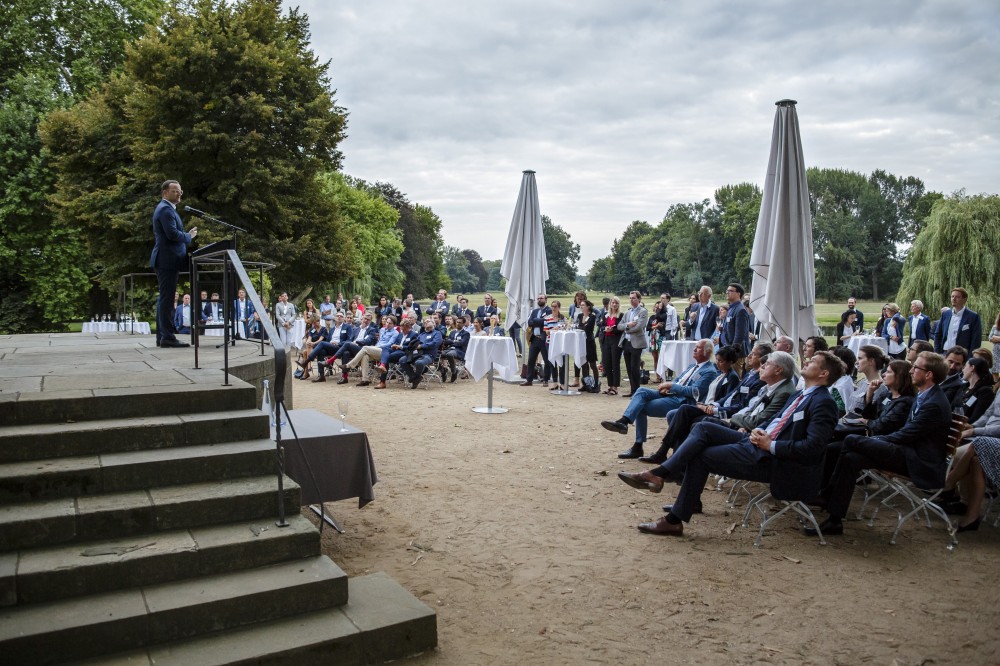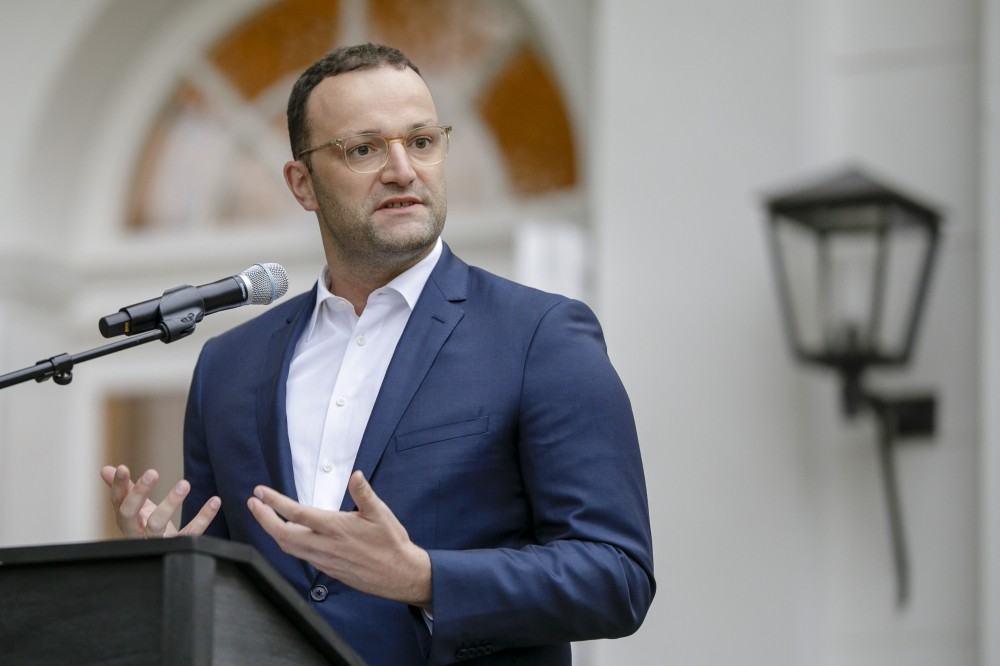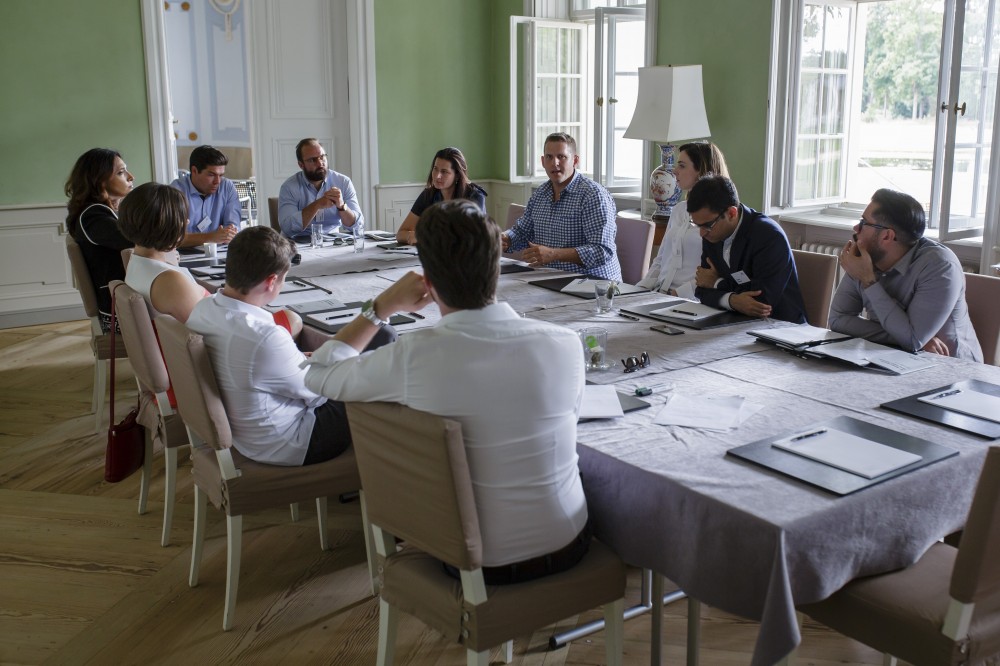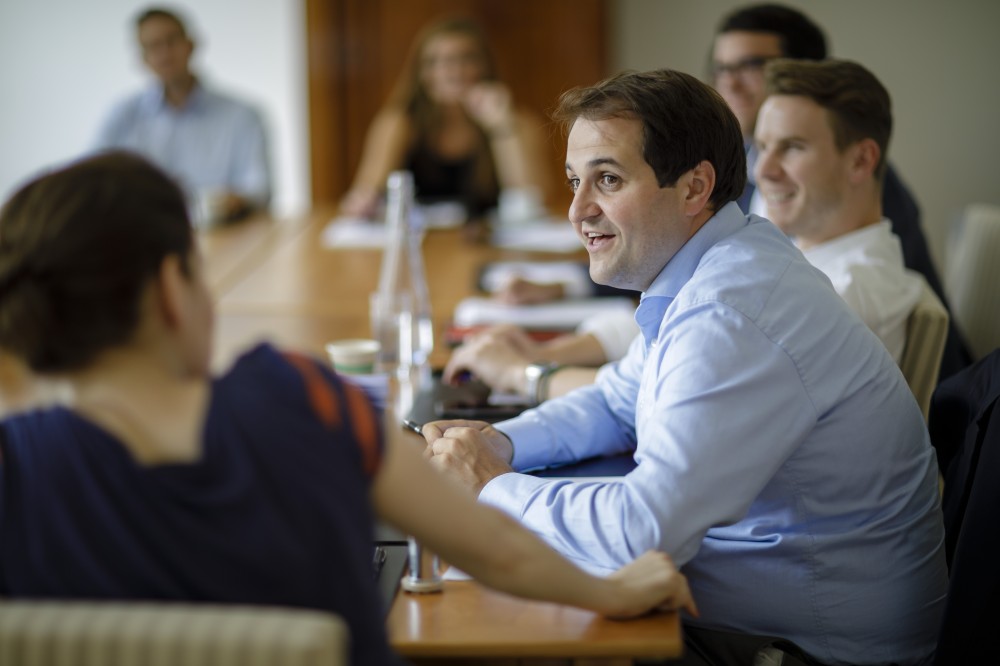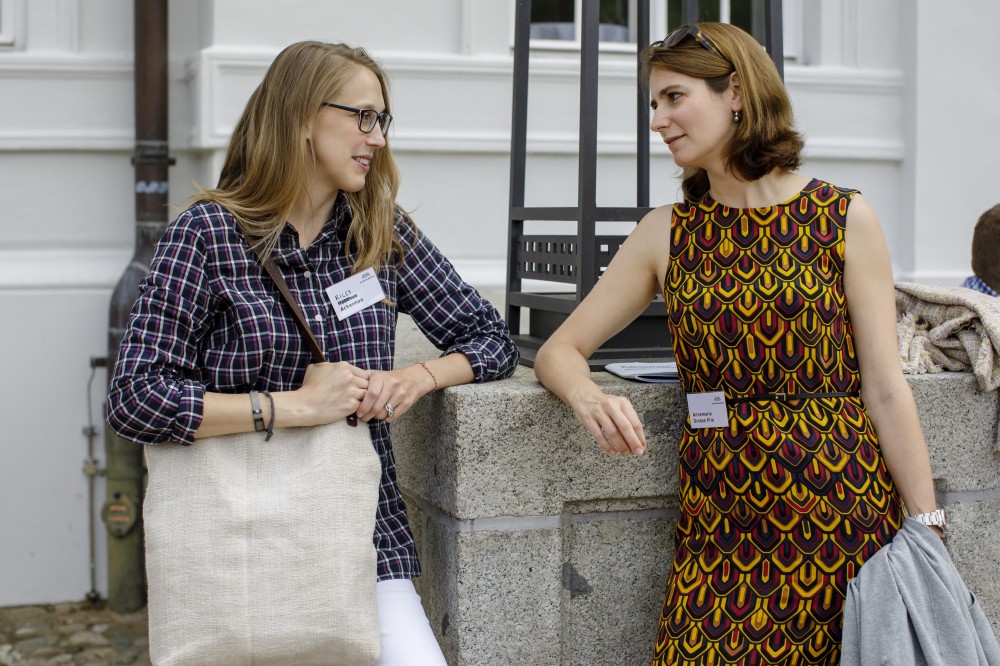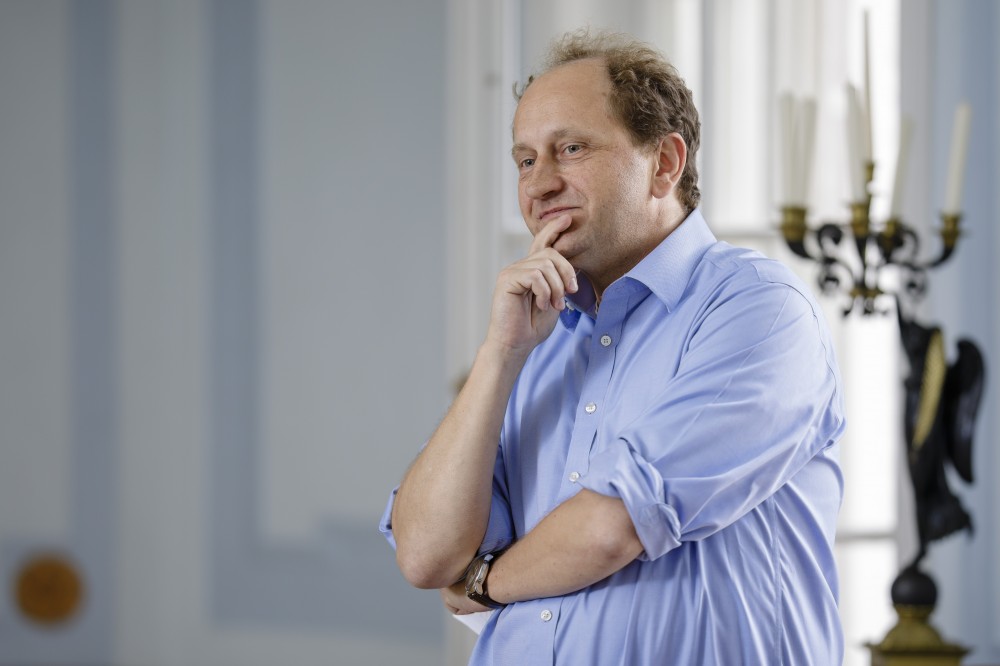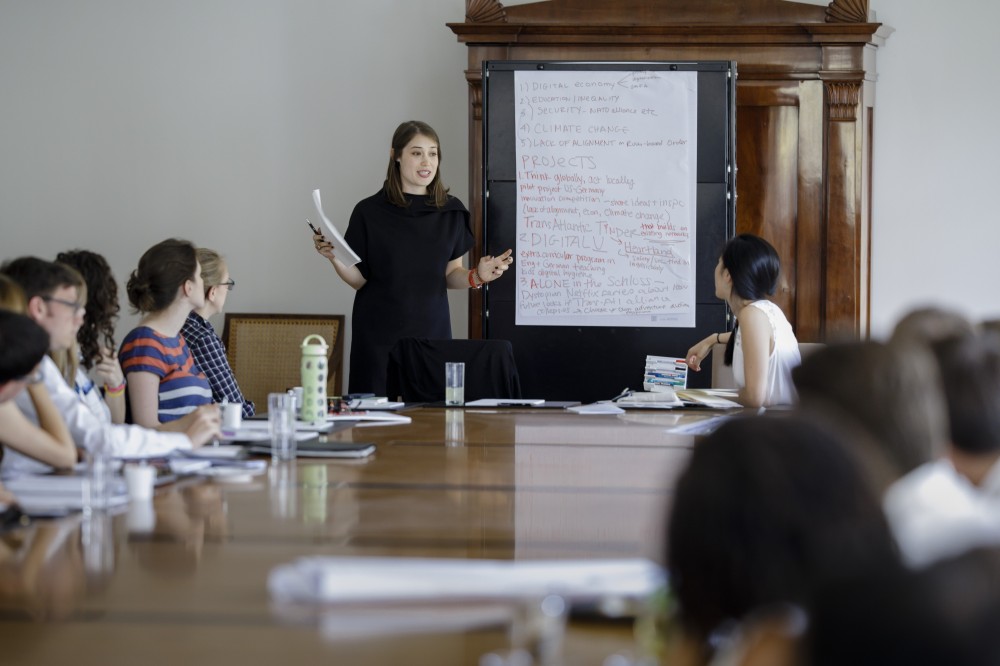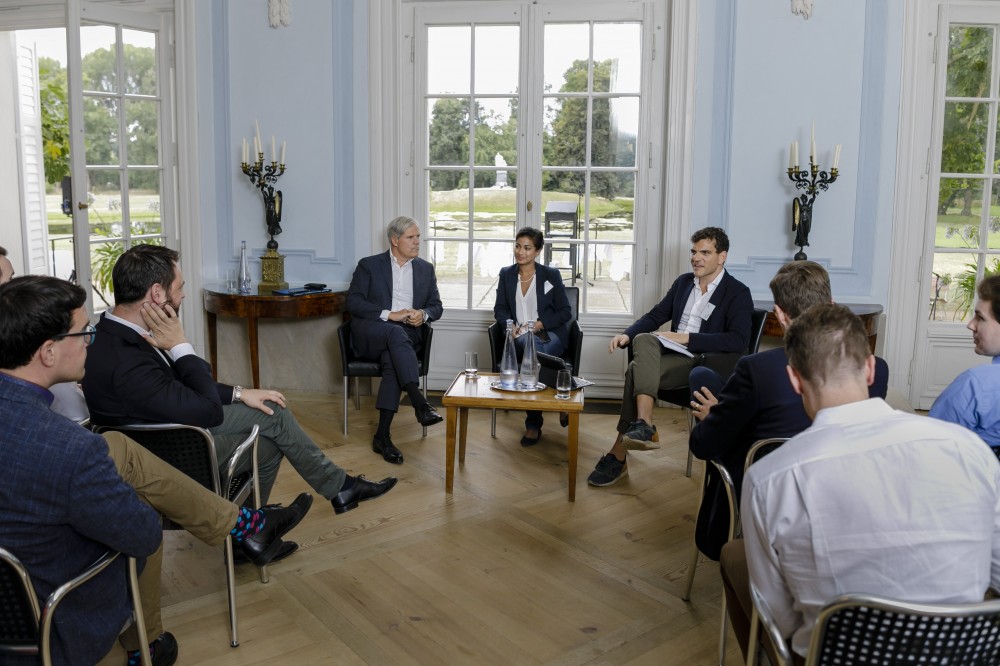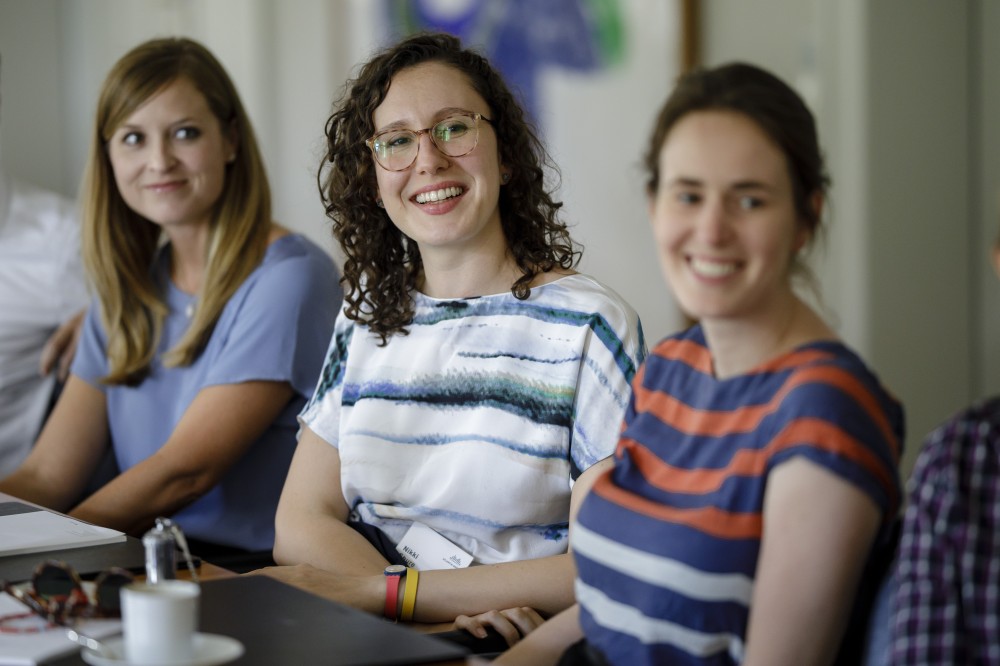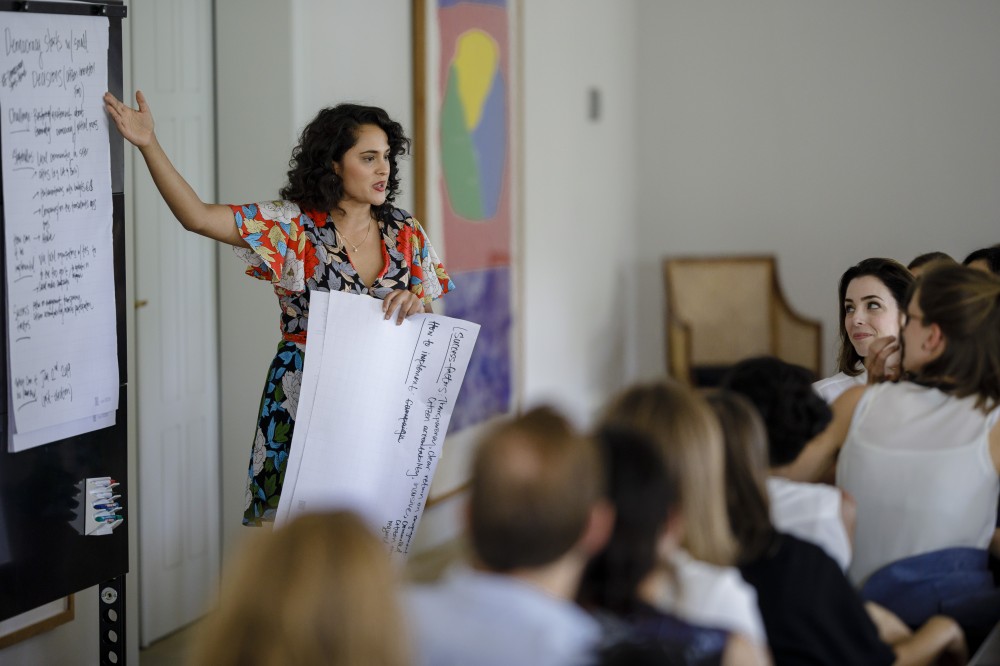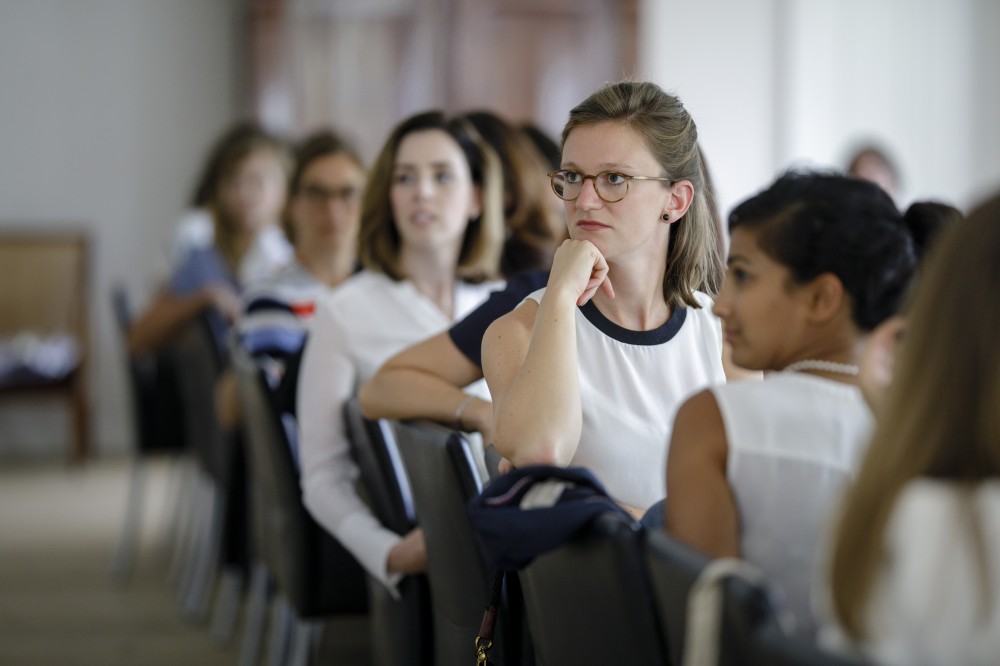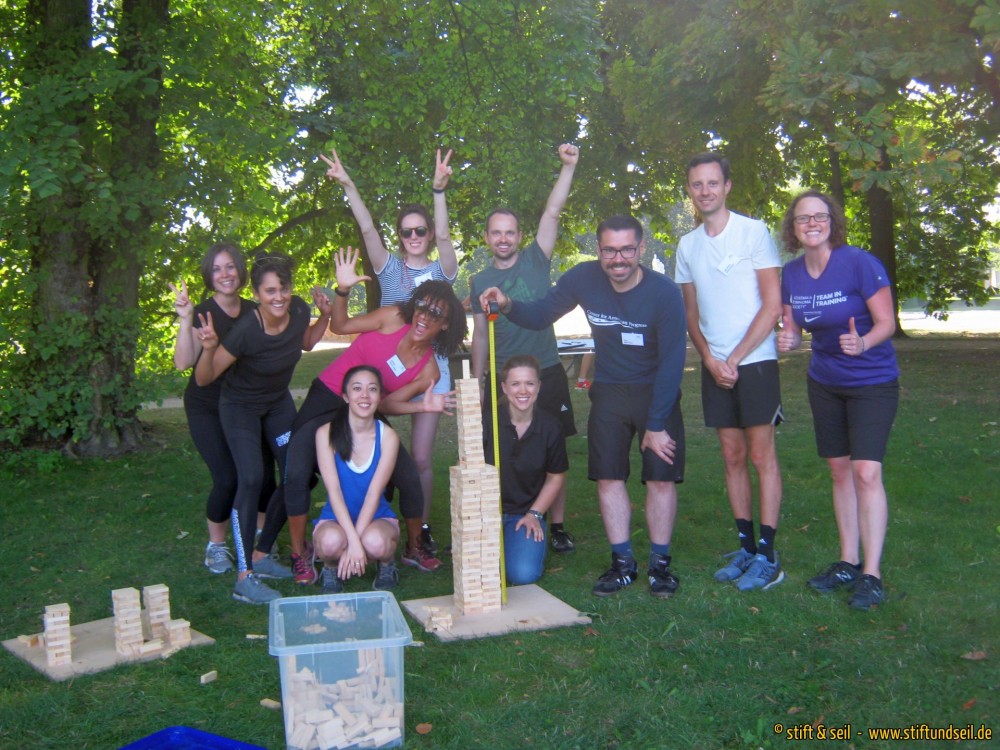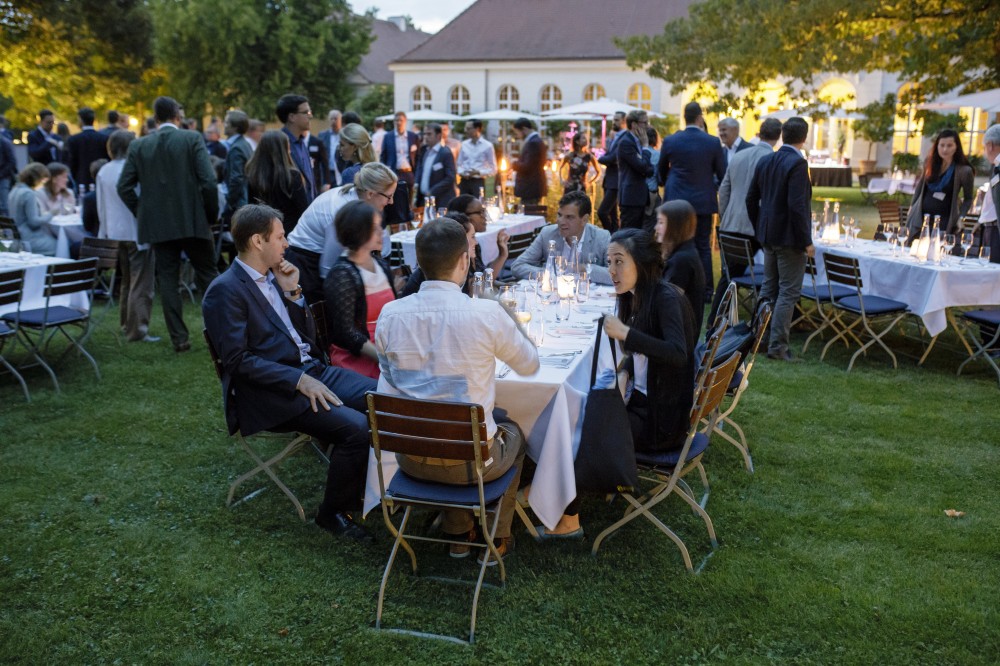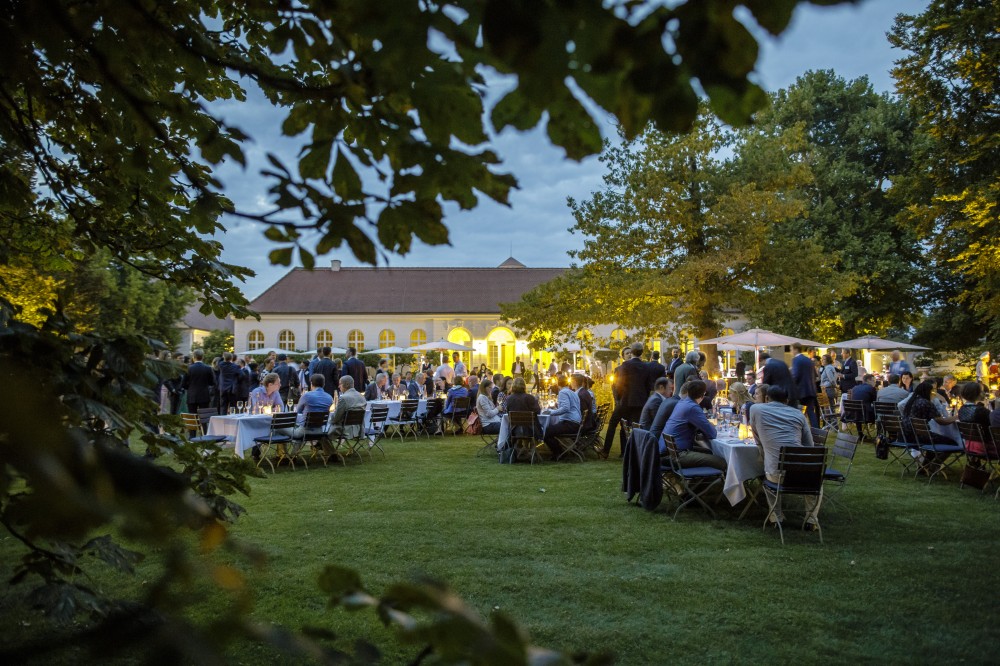“A wake-up call”
German-American Young Leaders Conference
Schloß Neuhardenberg & Berlin
August 11-17, 2018
By Julia von Cube and Emily Wang
At Schloss Neuhardenberg in Brandenburg, close enough to the German capital but at the same time far enough to focus on the group itself, forty-eight young professionals from government, diplomacy, academia, security, military, business, art, and sports on both sides of the Atlantic met for the 40th German-American Young Leaders Conference. The discussions were shaped by one overarching topic: In the face of both external and internal pressures, what is the future of the transatlantic partnership? What are the values that we should hold onto, and how do we adapt to new challenges like digitalization, demographic change, and a shifting world order?
Program
As the ties between the United States of America and Germany might be loosening, the debate at the U.S. Embassy Berlin with Robin S. Quinville, Deputy Chief of Mission, and moreover the talks at the Federal Foreign Office with State Minister Michelle Münterfering and Ambassador Antje Leendertse encouraged the group to take the current situation as a chance to reflect where we stand concerning our common values and standards in the transatlantic partnership. Alexander Graf Lambsdorff, MdB (Young Leader 1997) inspired this year’s cohort to look at the interests and issues that currently unite the transatlantic partners, rather than reminiscing about the past.
During the week, the group of young professionals visited Axel Springer SE for a discussion with Julian Reichelt, Chairman of the BILD Editorial Offices & Editor-in-Chief of BILD and BILD Digital, followed by a tour of the publishing house’s newsrooms. In addition, a talk with Roland Jahn, Federal Commissioner for the Records of the State Security Service of the former German Democratic Republic, offered a wider understanding of the German past – not only for the American participants of the program. Exchanges with Stefan Winners, Member of Burda Digital’s Board, Hans Raffauf, co-founder and Chairman of Clue and Till Behnke, founder of nebenan.de and betterplace.org , provided insights into digital transformation in Germany. A panel discussion on migration with Professor Dr. Naika Foroutan, Director of the Berlin Institute on Integration and Migration Research (BIM), and Farhad Dilmaghani, Former State Secretary, gave an outline of the questions of social stability Germany has to tackle.
The different tone in the transatlantic partnership was the subject of several discussions and meetings. The talk with Dr. Andreas Dombret, former Member of the Board of Deutsche Bundesbank & Member of the Board of Atlantik-Brücke e.V., focused on economic stability and changes in economic transatlantic decisions. German defense priorities and transatlantic security cooperation within NATO were the topics of Major General Michael Hochwart’s visit. The keynote of Federal Minister Jens Spahn (Young Leader 2014) addressed the future of the transatlantic partnership, but also the challenges Germany faces domestically, such as immigration and integration. Spahn’s speech was part of a summer reception with Atlantik-Brücke Members and Young Leaders Alumni bridging the generations of the program.
Discussion Points
Underpinning the entire week was an informal and interpersonal exchange about the shared and differing values between the U.S. and Germany. Despite deceptively similar cultures on the surface and cultural affinity, we discussed the differing concepts and expectations of leadership. Some of the speakers encouraged the group to think carefully about what our shared values are, as large parts of both the German and the American public find the transatlantic partnership and NATO increasingly less relevant.
Security and stability were of great concern, especially in light of Trump’s heightened rhetoric against Germany and other NATO partners.
Security and stability were of great concern, especially in light of Trump’s heightened rhetoric against Germany and other NATO partners. Despite the provocative language, working level relationships appear to be strong; some even claimed stronger than before. Furthermore, there was a general consensus from speakers and participants alike that Germany should invest more heavily in its military readiness. This discussion also highlighted the diverging public opinion on the two sides of the Atlantic. Many speakers pointed to a complacency of the German public, as a generation of young people has grown up in peacetime and sees less relevance in organizations like NATO. On the American side, pithy messaging about “fairness” in defense spending has mobilized public sentiment. In either case, these trends demonstrate the need for better and more digestible messaging around the relevance of the transatlantic partnership and NATO in particular.
Many felt that China’s growing power is encroaching on American hegemony.
Another important foreign policy and security factor that was discussed was the shifting world order, especially with regards to Russia and China. In the case of Russia, speakers and participants from different industries expressed concern at its influence throughout the ex-Soviet bloc, desire to weaken the EU, skillful use of media outside of its borders, and the need for a strong NATO to deter further disruption. Many felt that China’s growing economic power and influence through One Belt, One Road and other initiatives are encroaching on American hegemony. While we debated the exact nature of China’s ascent and Russia’s ultimate intent, it became clear that the U.S. and Germany should articulate a clearer vision and strategy concerning these two countries for the future.
Both the United States and Germany face significant internal pressures including digitalization and demographic change.
In addition to a changing world order, both the United States and Germany face significant internal pressures including digitalization and demographic change. The potential influence on societies and workforces of AI and digitalization is vast. Our discussions centered on the implementation of redistributive policies, universal basic income, the role of education and, even more challenging, how to define purpose in a world with drastically fewer jobs. Demographic change calls to mind migration, but in fact includes issues like an aging and shrinking population and changing ethnic majorities. Another important point that came up was social inclusion: While our societies become more pluralistic, many still struggle to access equal opportunities.
The media’s ability to knit a society together or tear it apart was constant throughout the week. Speakers highlighted their concern at Russian propaganda in Germany and the lack of fact checking or investigation on social media.
“Privilege comes with responsibility”, one of the Young Leaders pointed out.
In response to this slew of challenges, conference participants were also focused on concrete solutions to strengthen the transatlantic relationship. Suggested projects ranged from engagement through educational institutions to using entertainment and news channels as means to educate different segments of the public on the strength of our existing bonds and the continued necessity for them. Proposals also included more formal partnerships between sister-cities and other demonstrations of the two countries’ synergies across business, science, and various industries. Lastly, we discussed the need for more civic engagement to restore trust in and excitement about the political process and democracy.
“Privilege comes with responsibility”, as one of the Young Leaders pointed out as a summary of the intensive week of debate and discussions. This is driven by the firm belief that turning the back on the transatlantic partnership is not an option.

